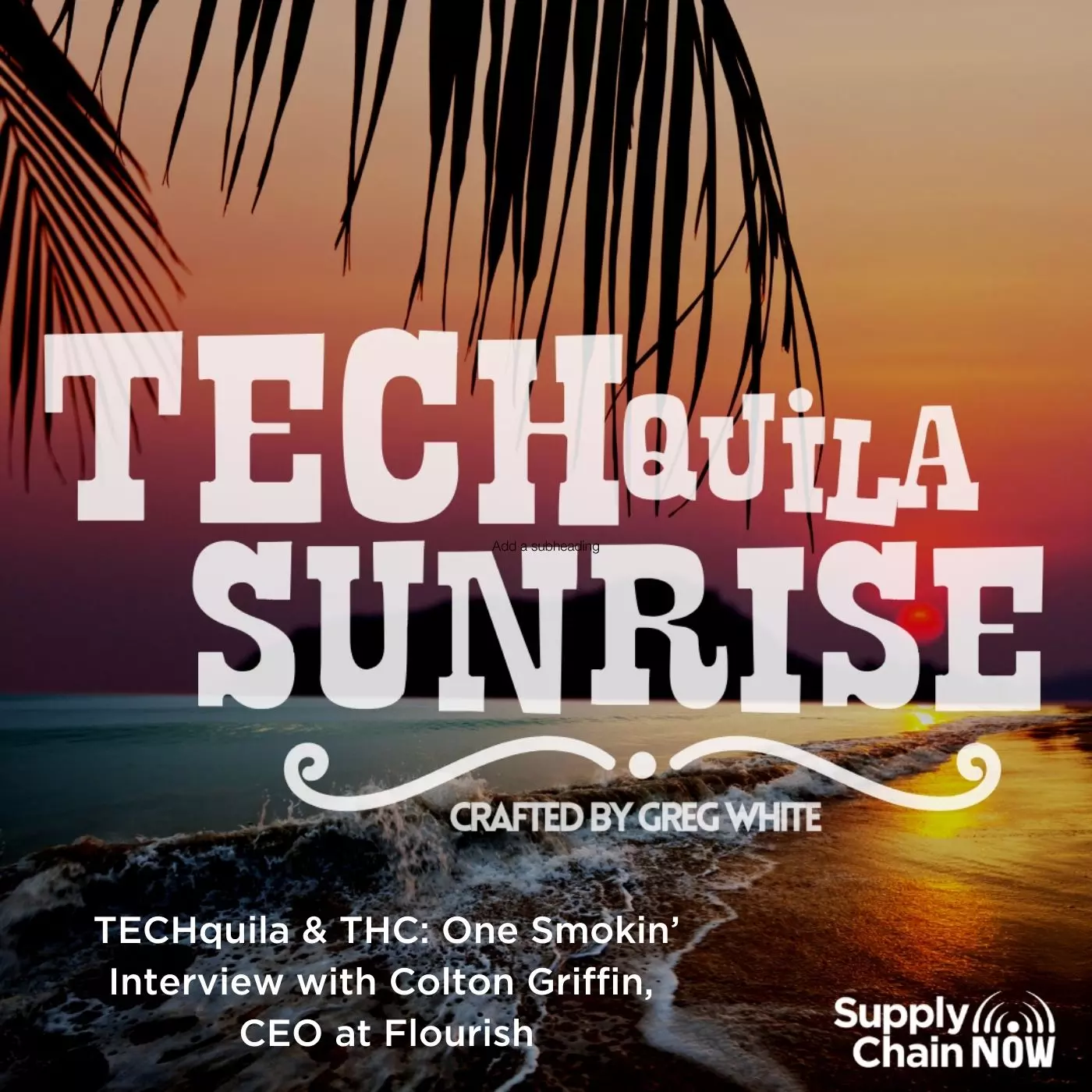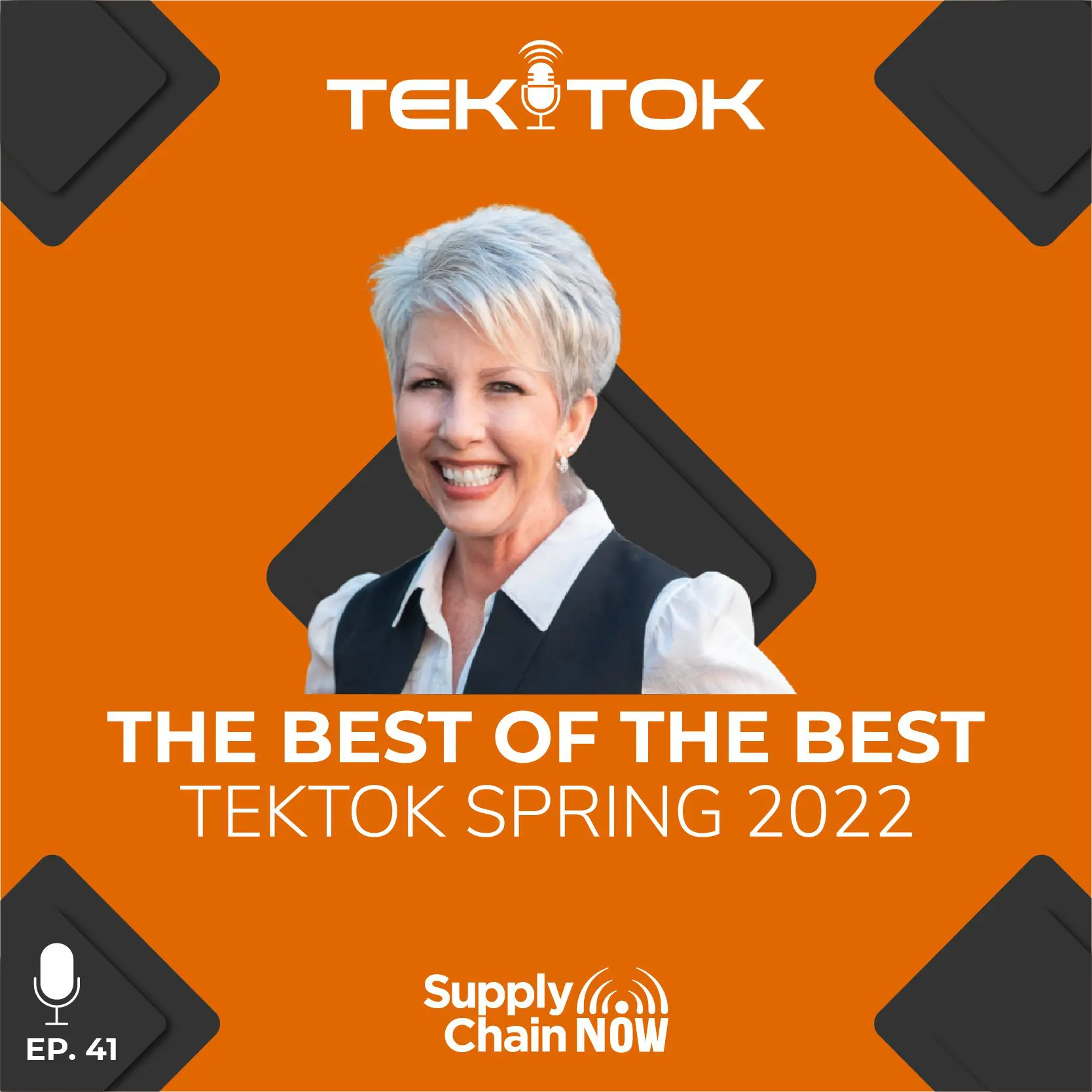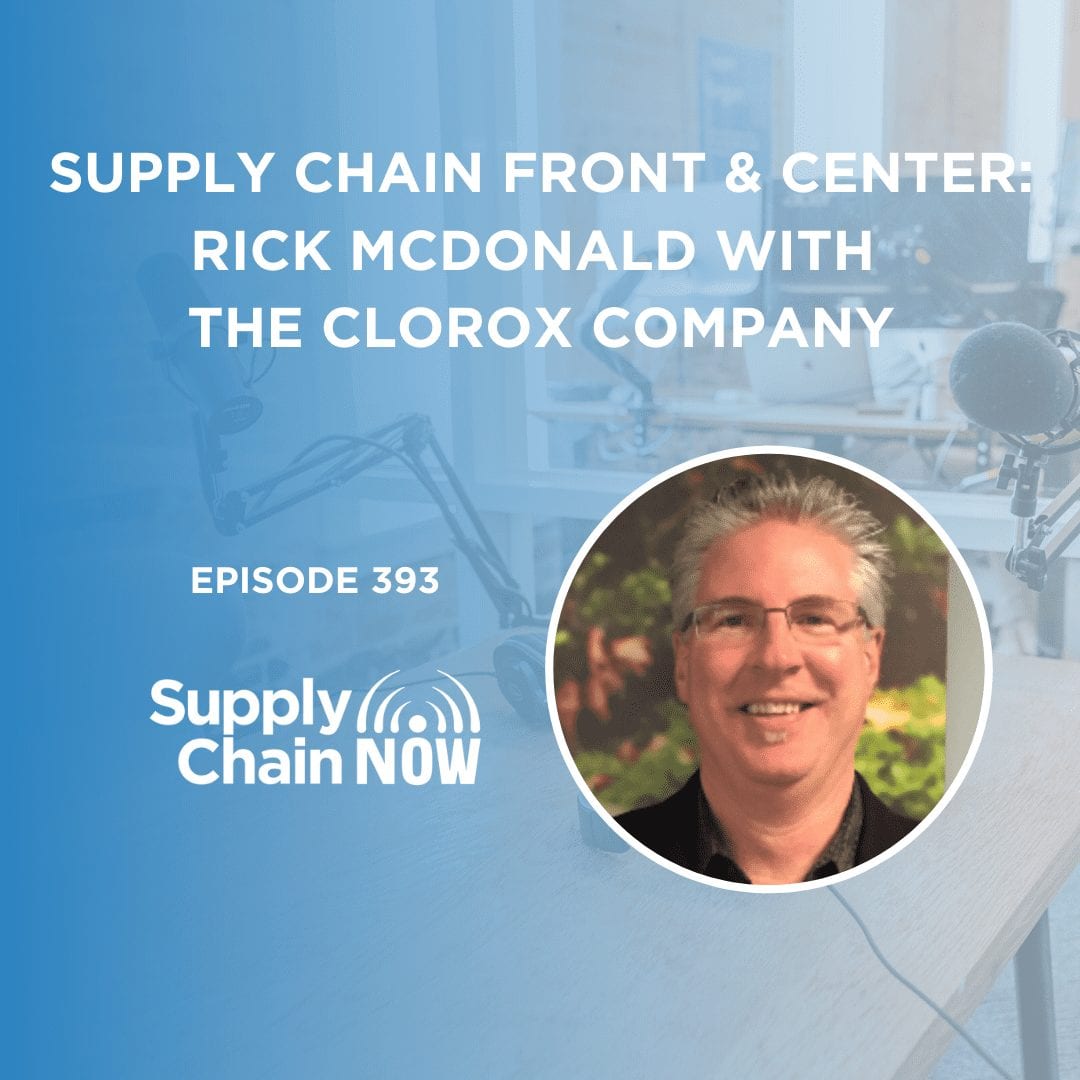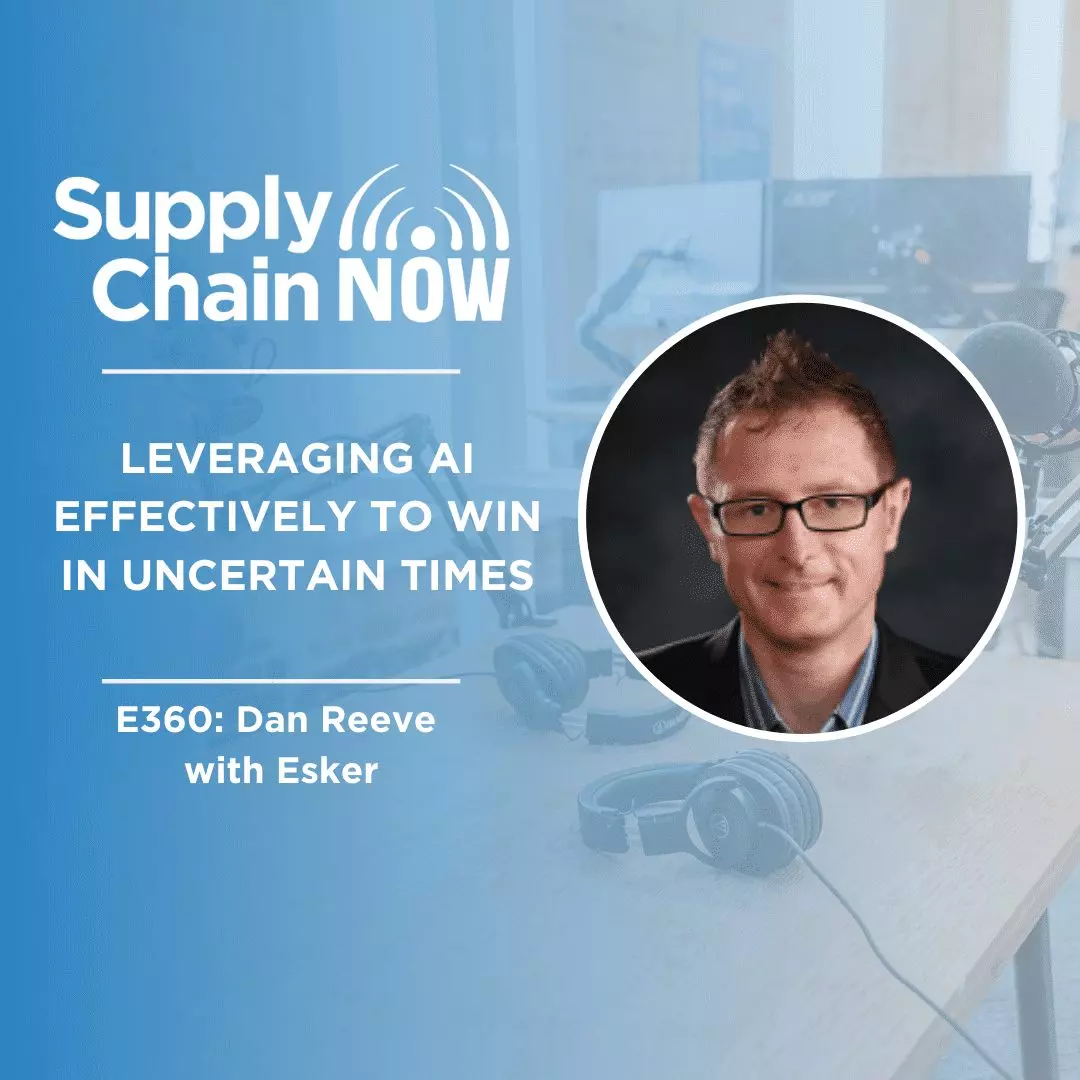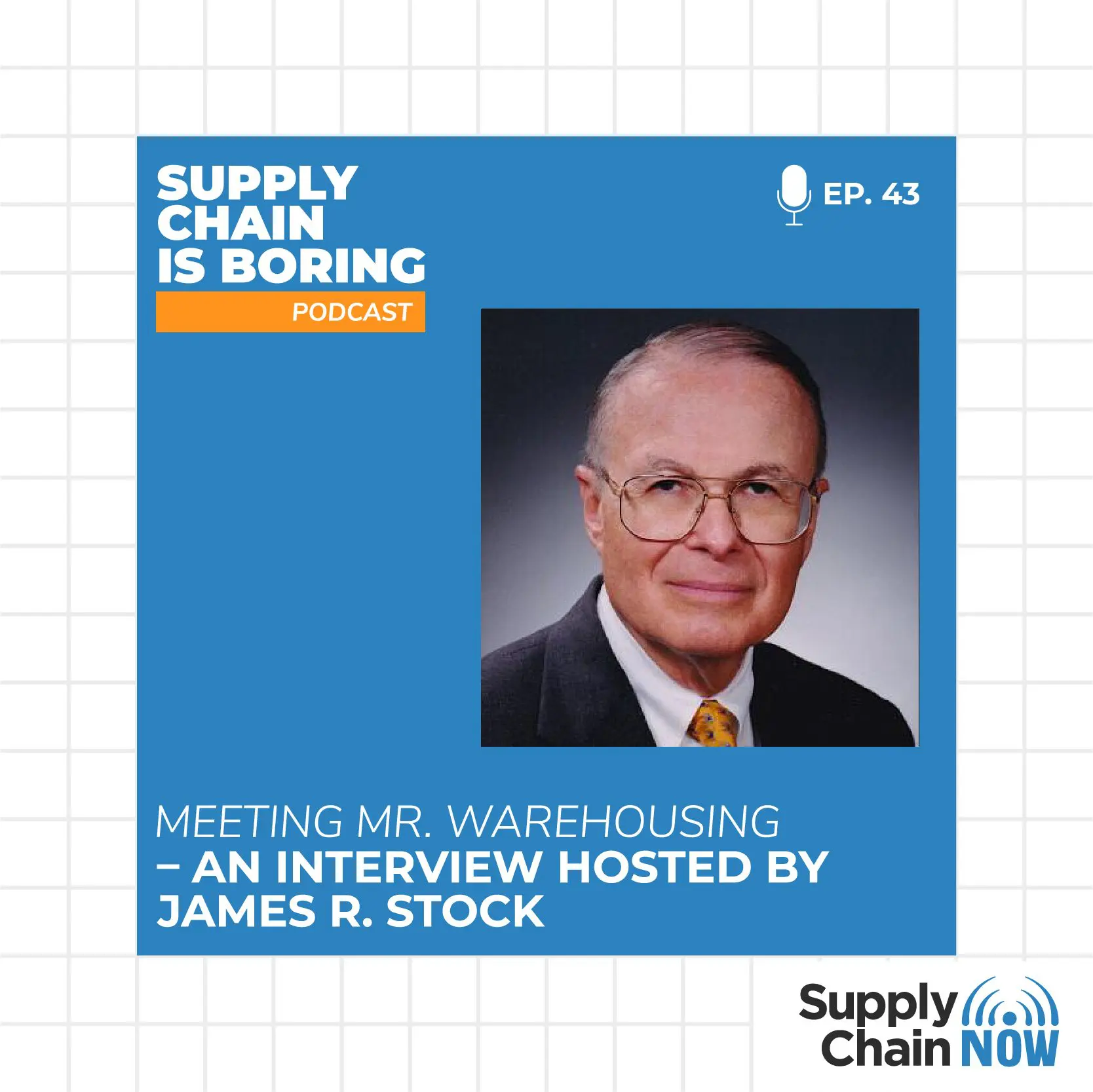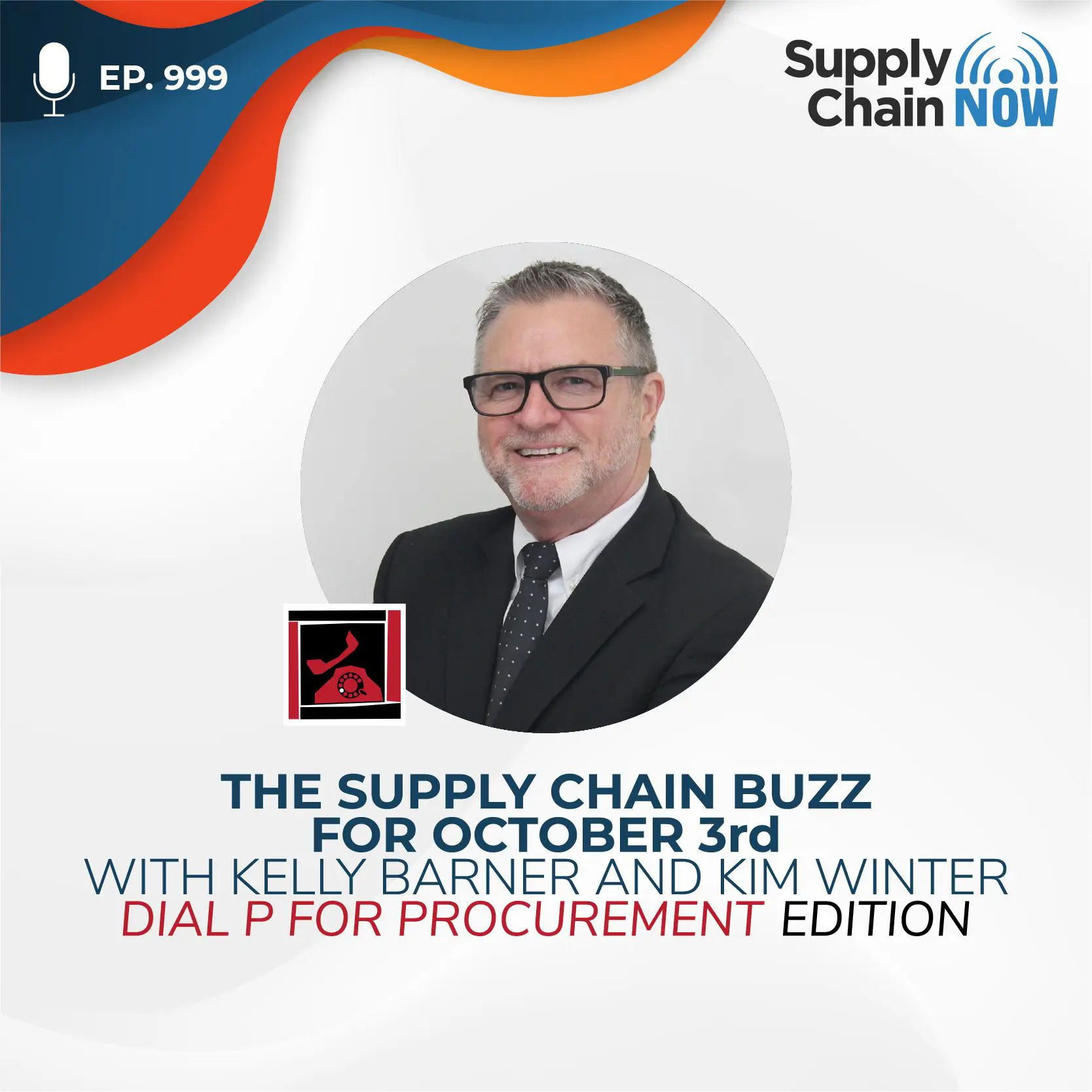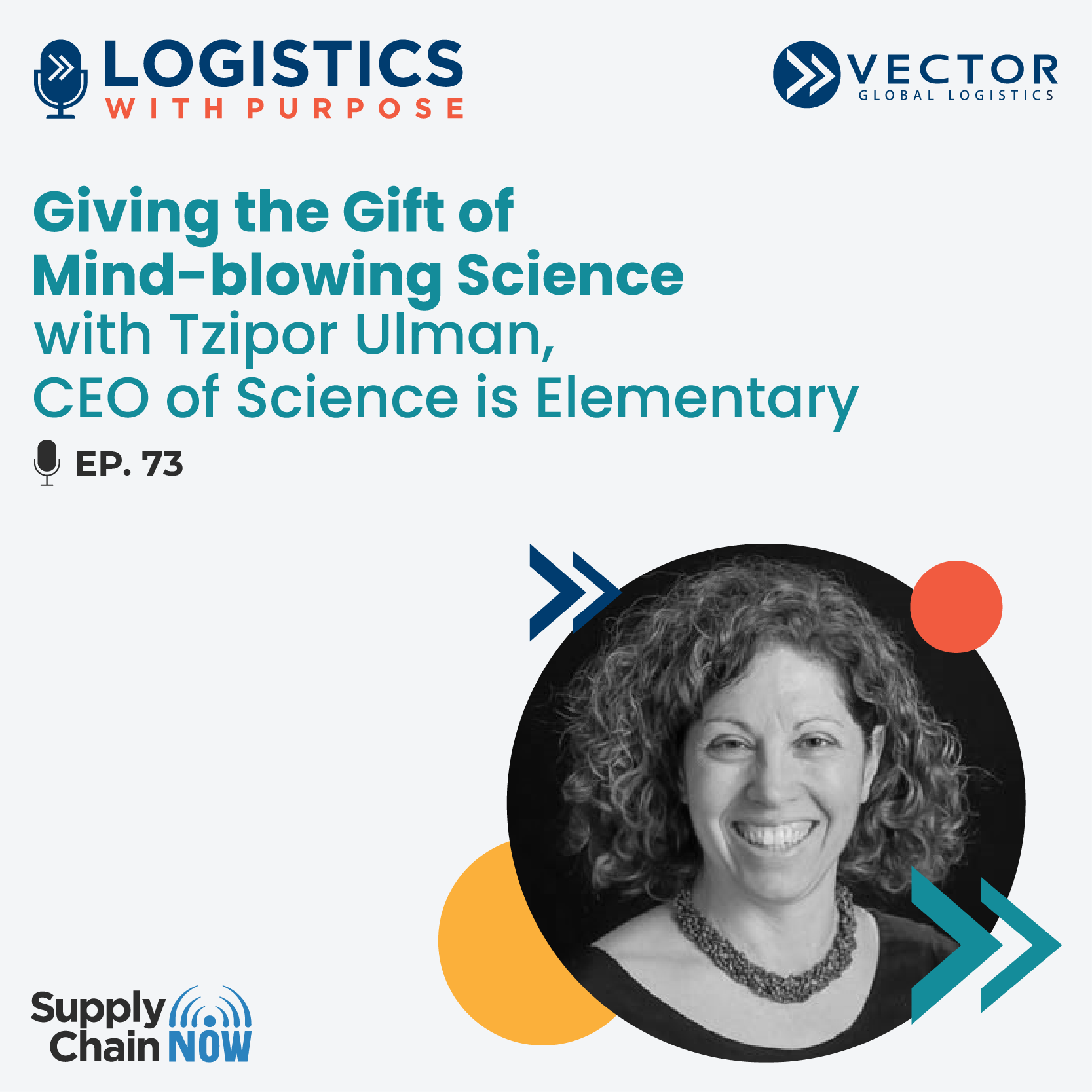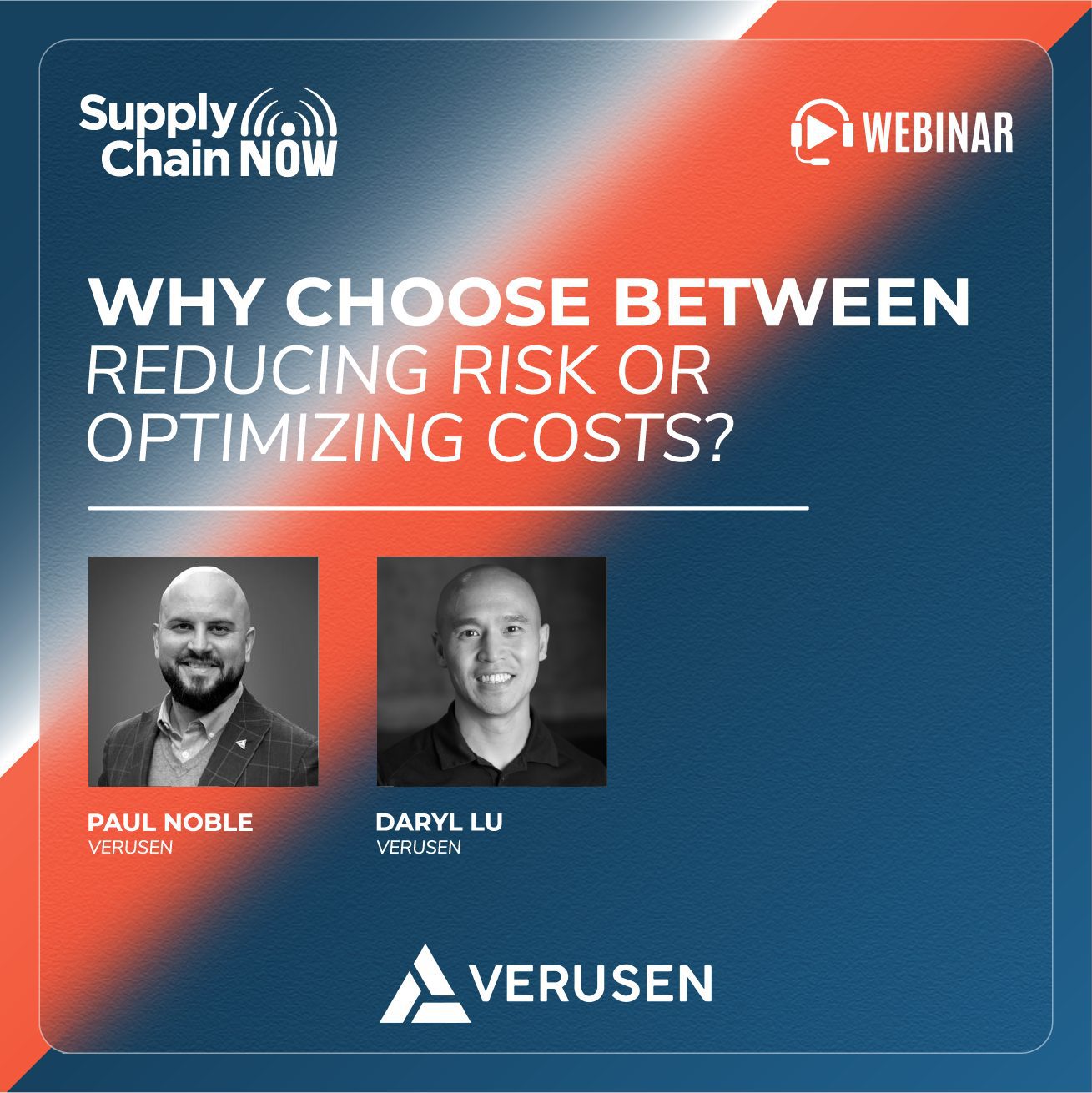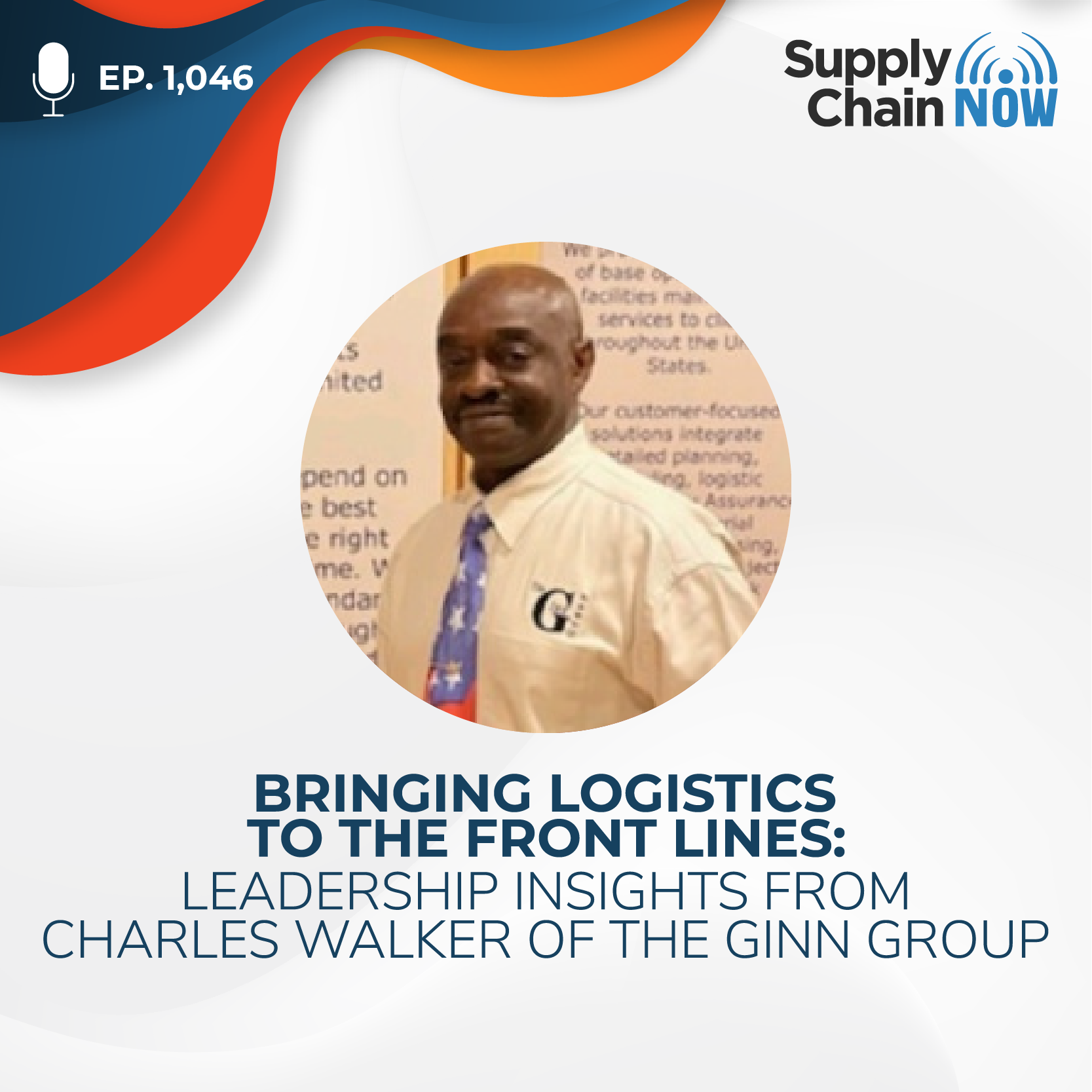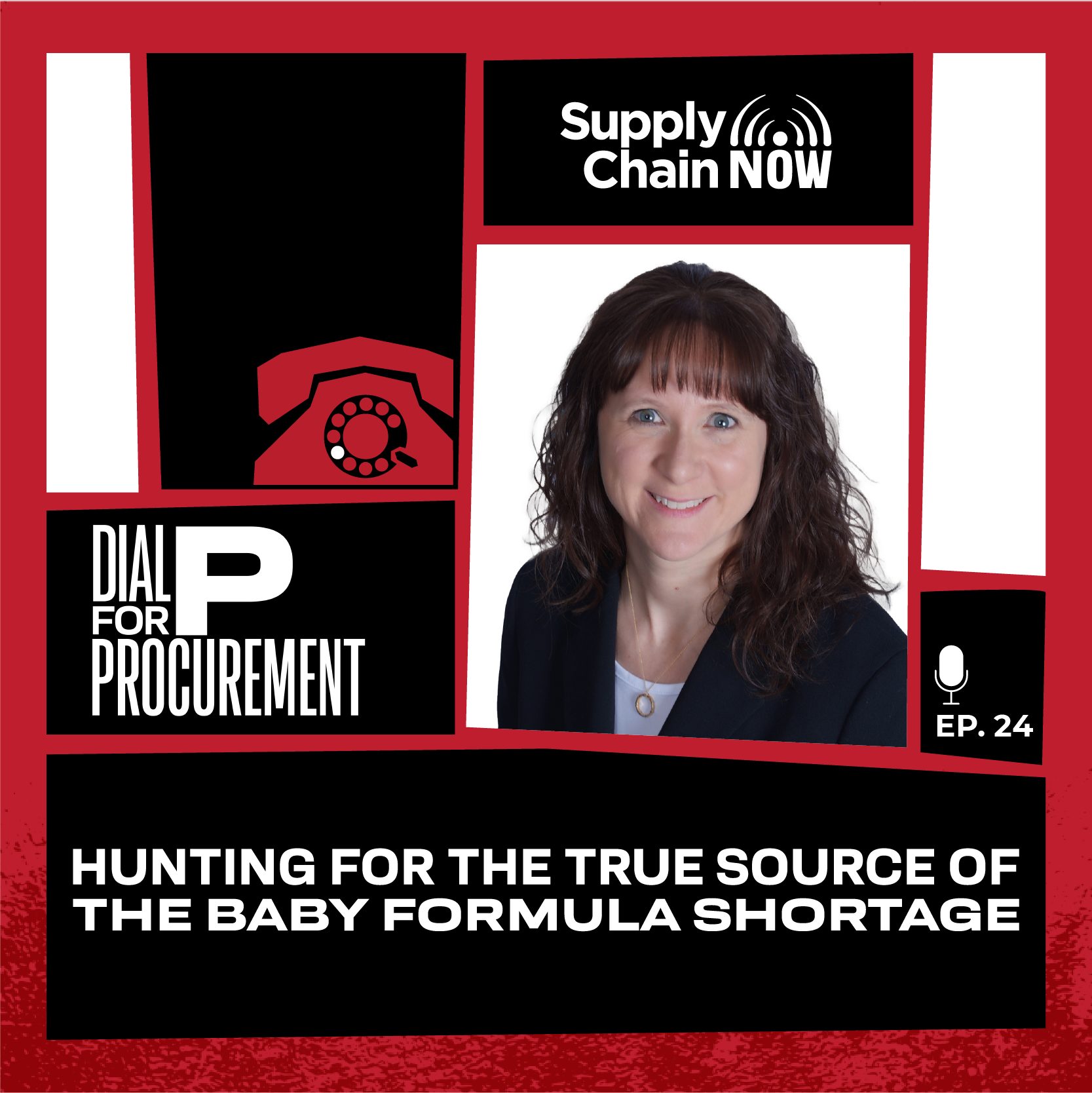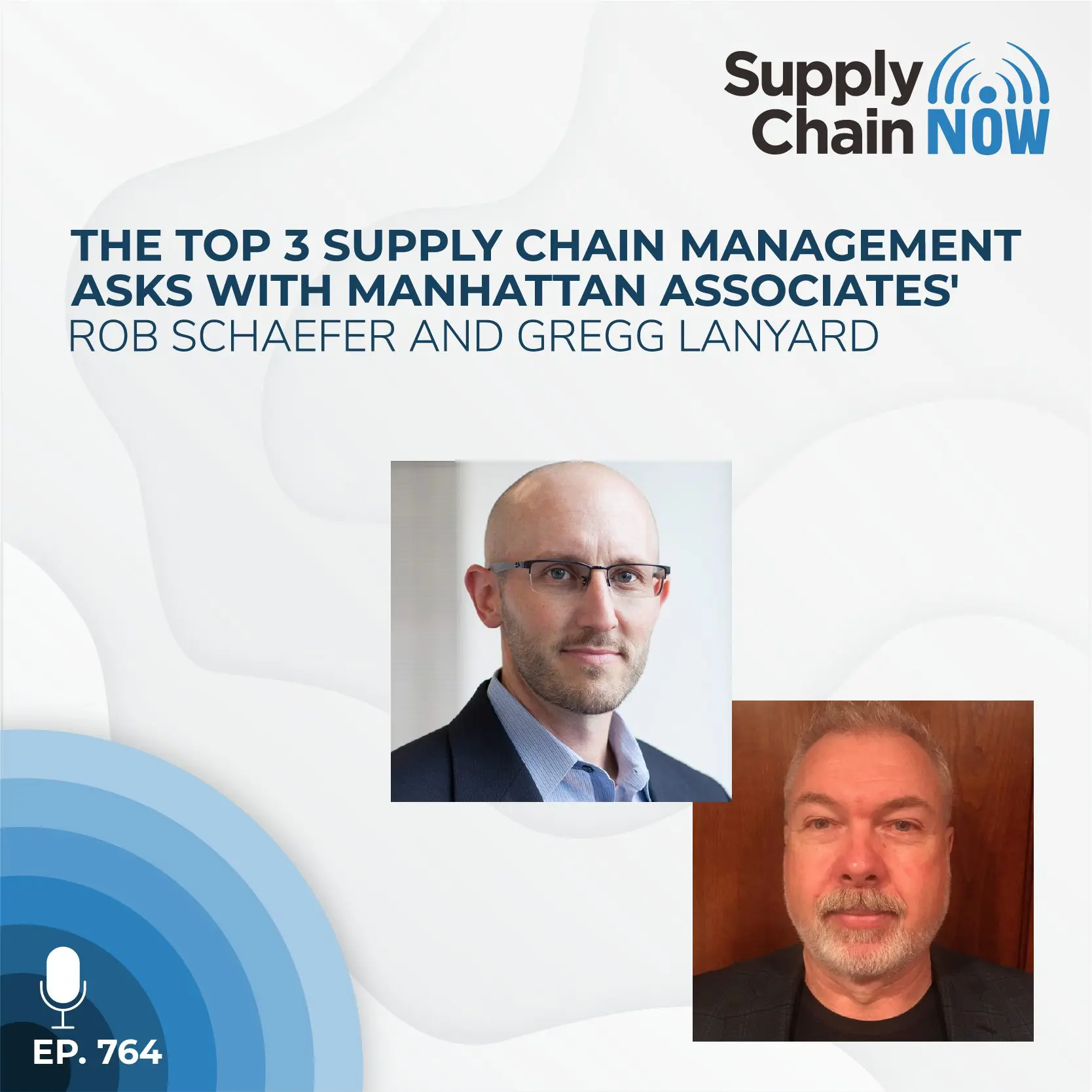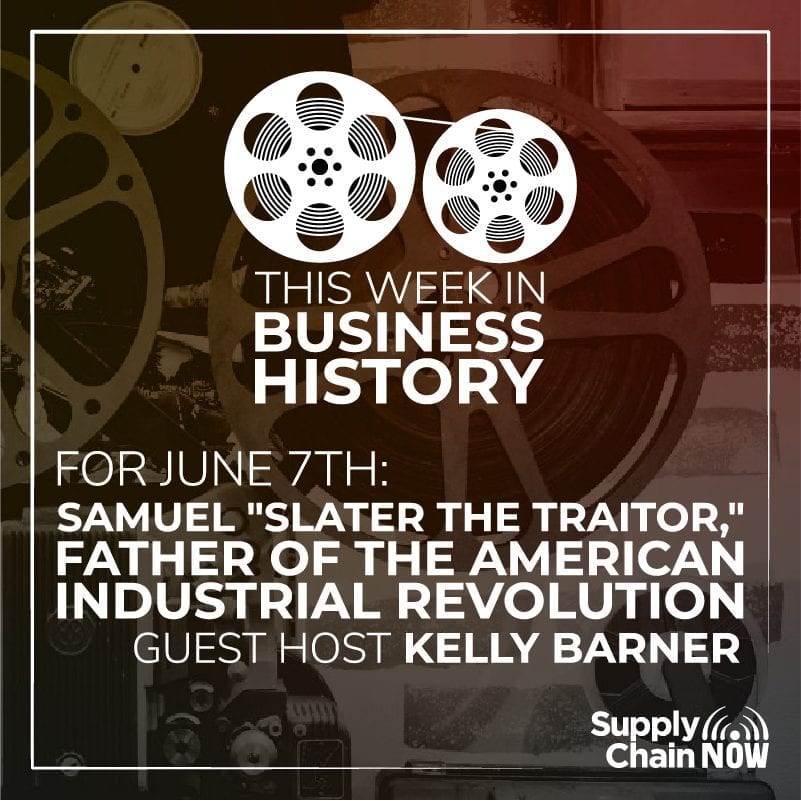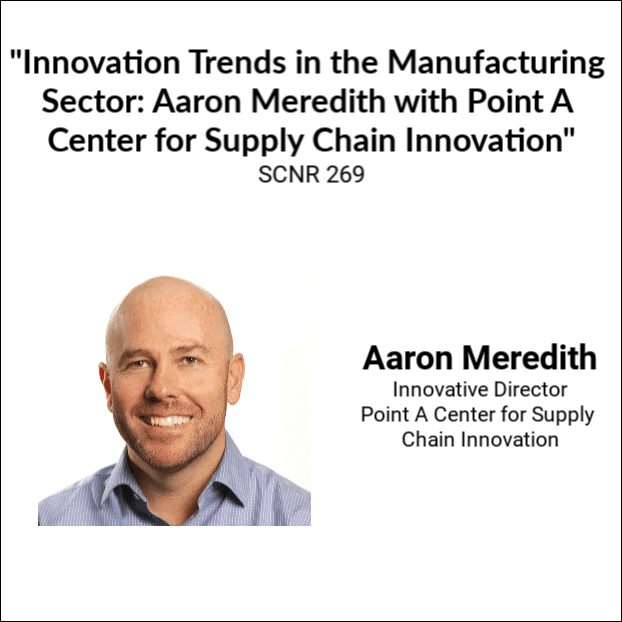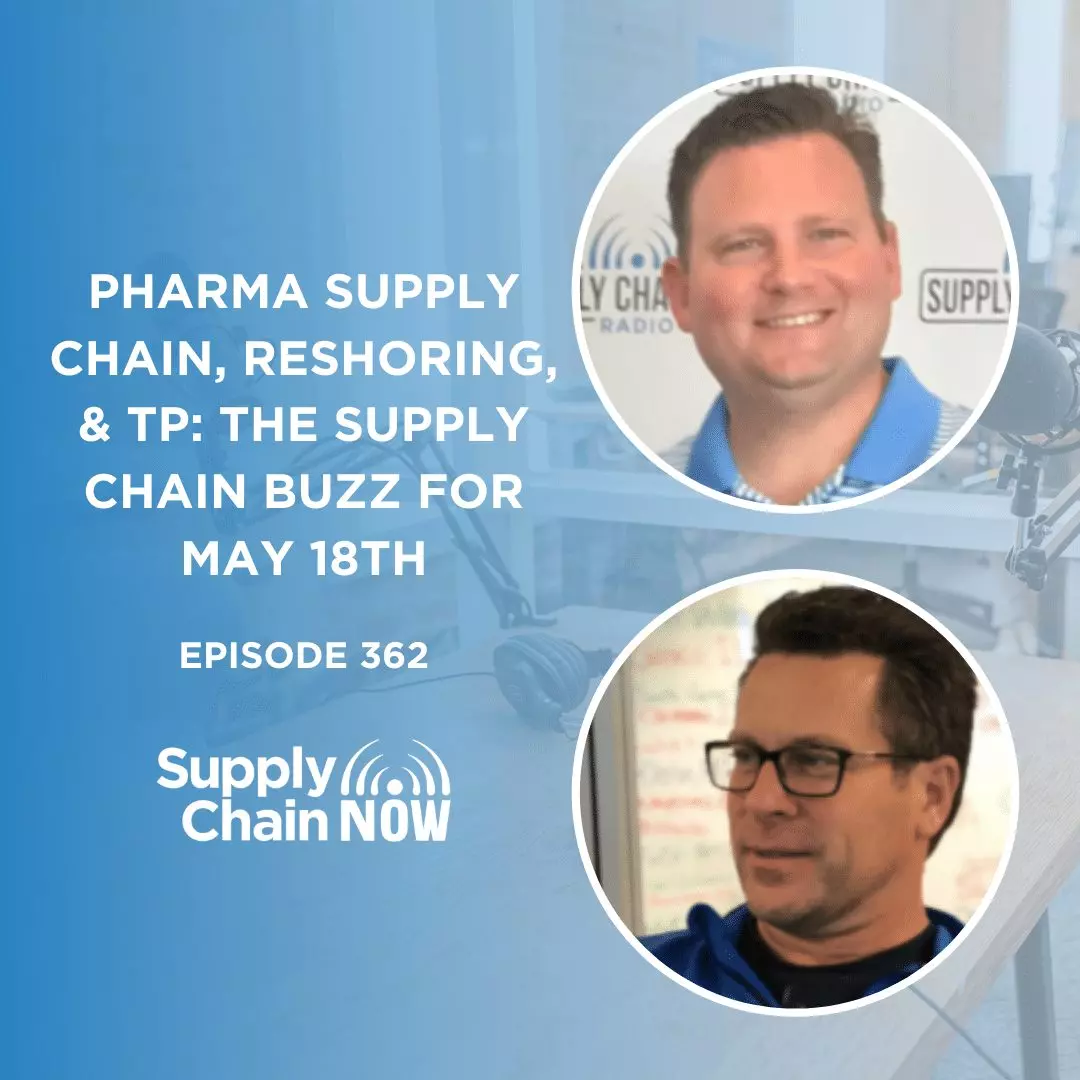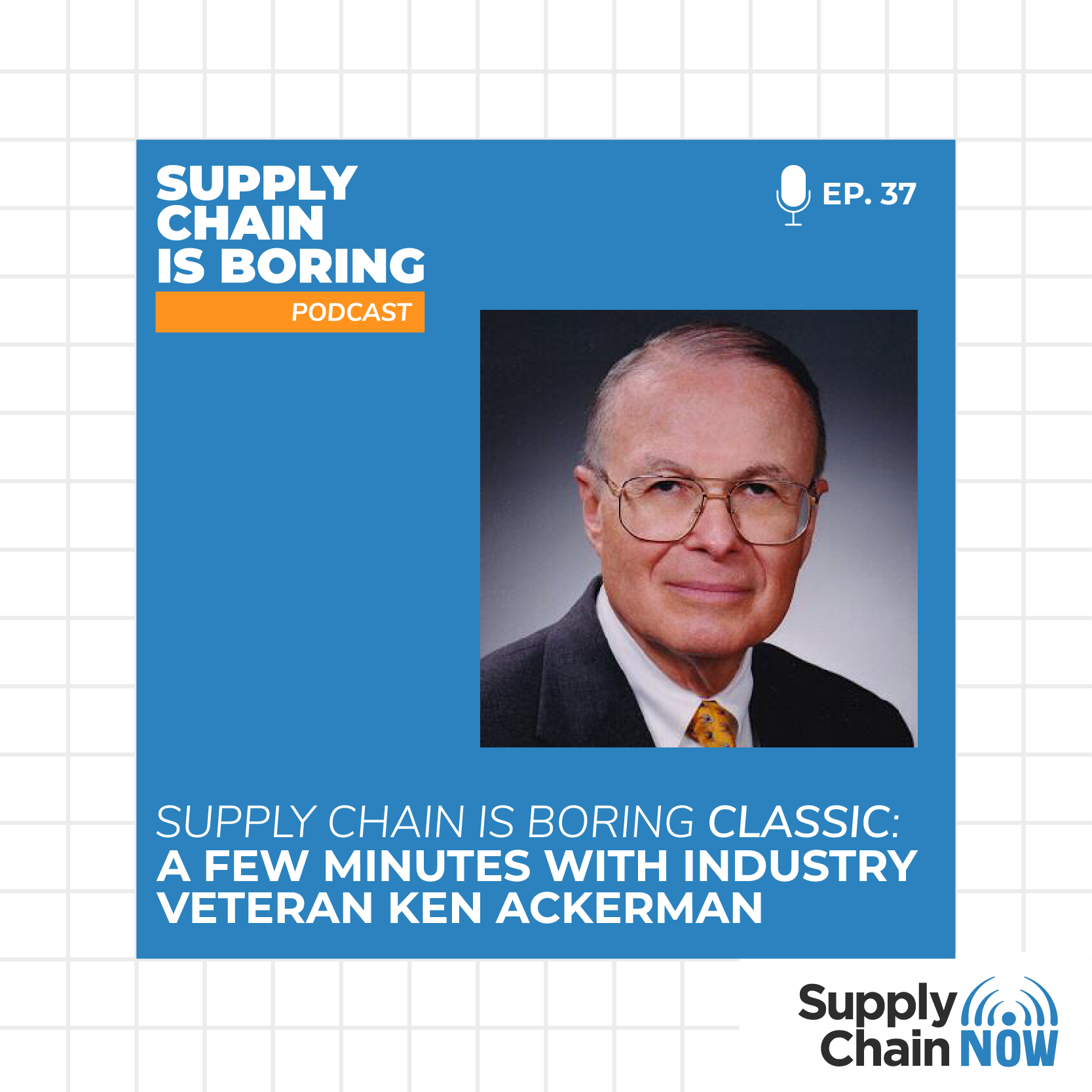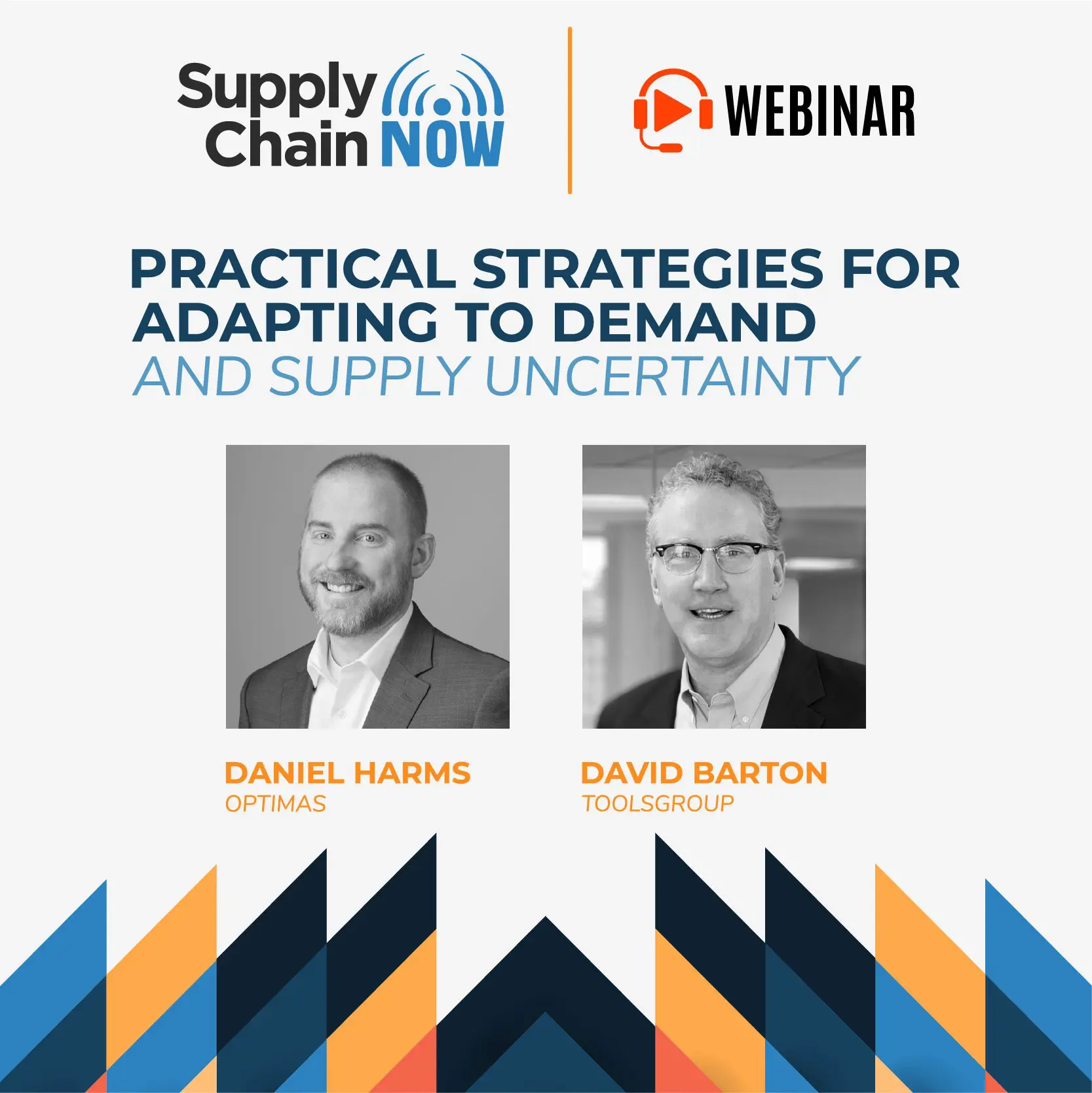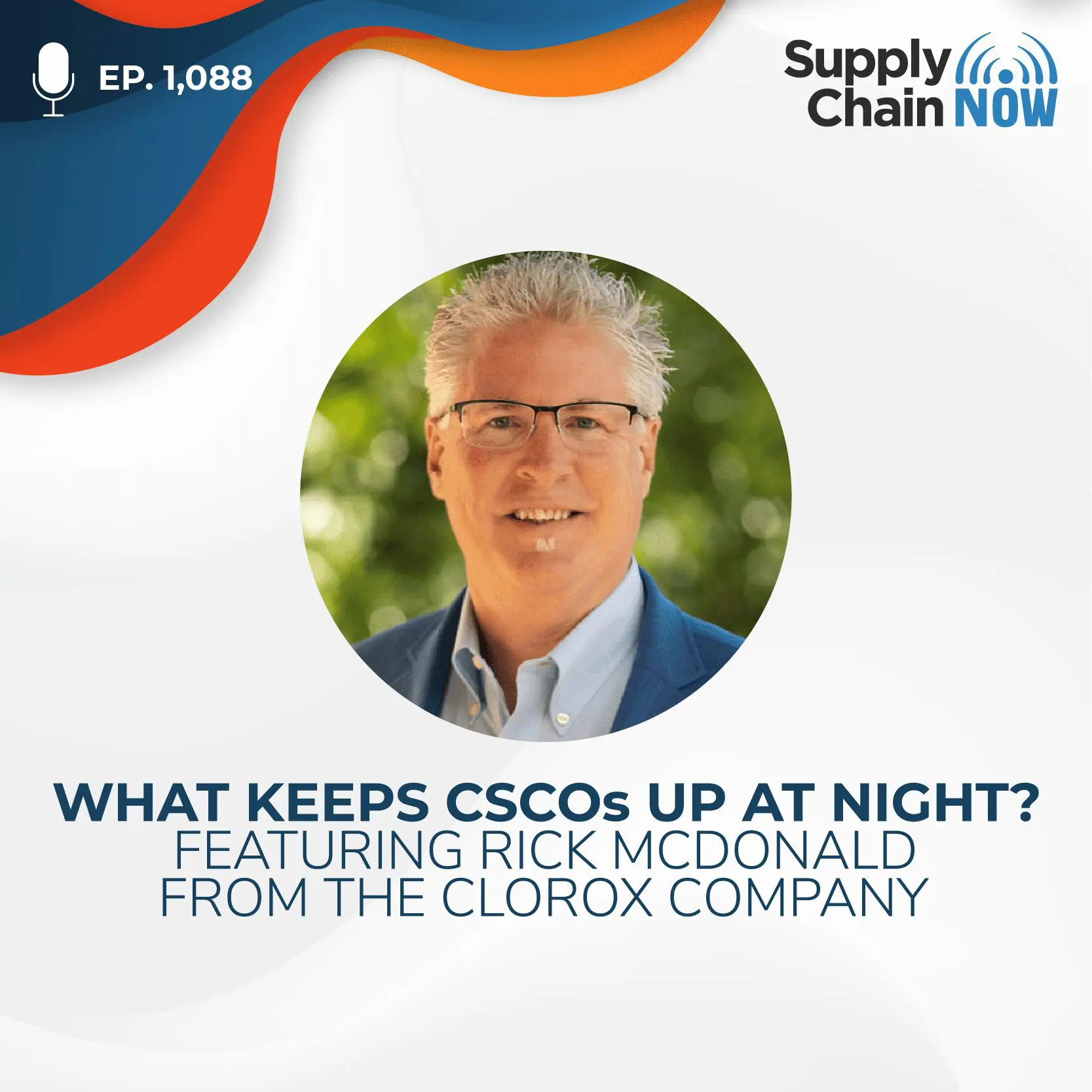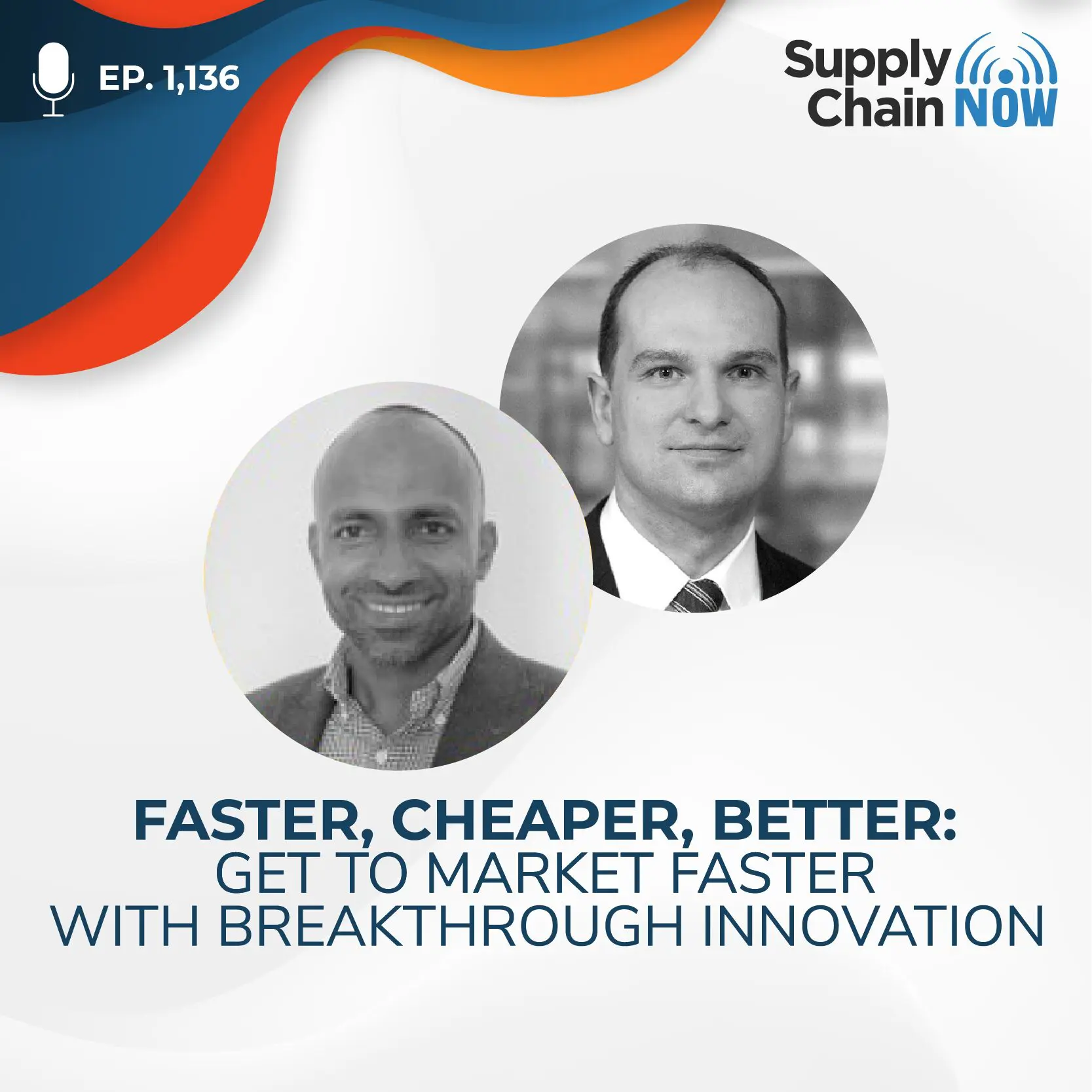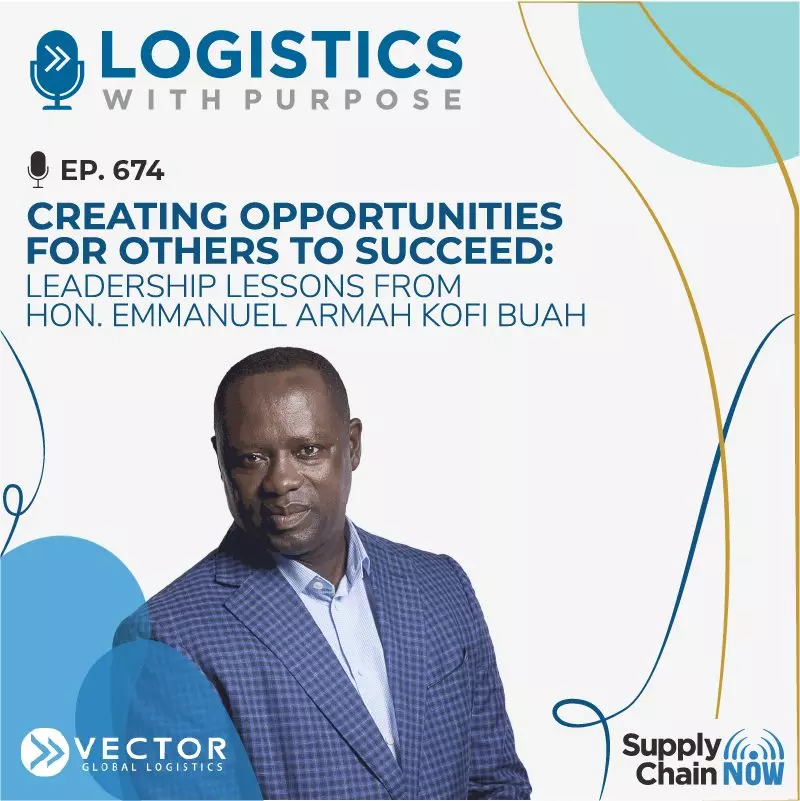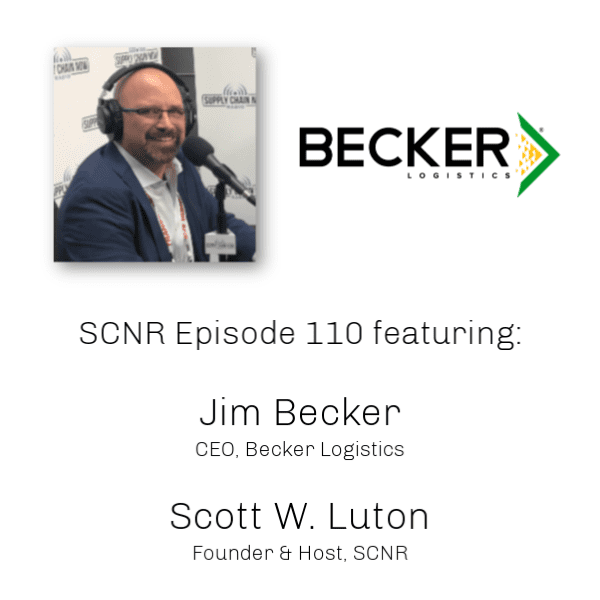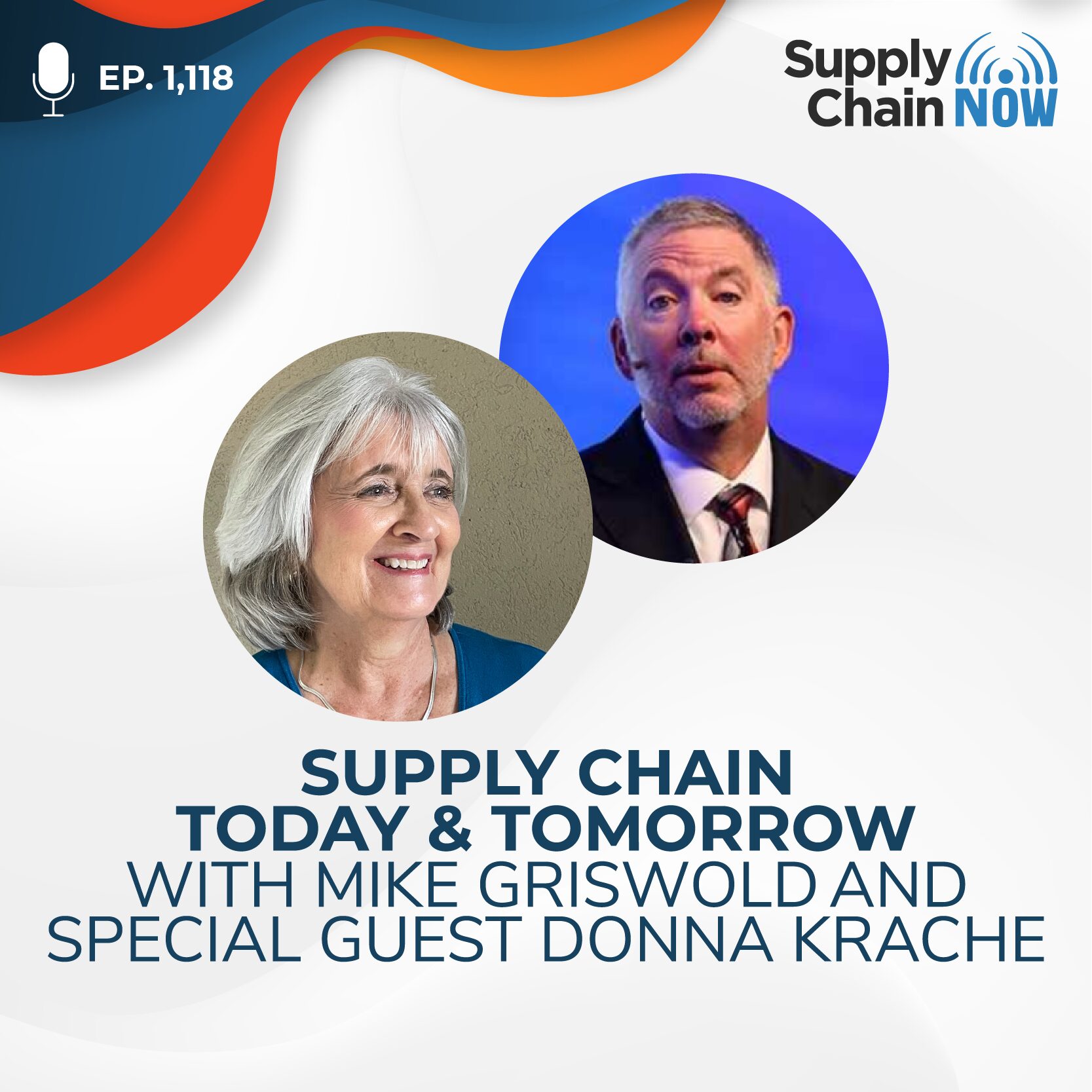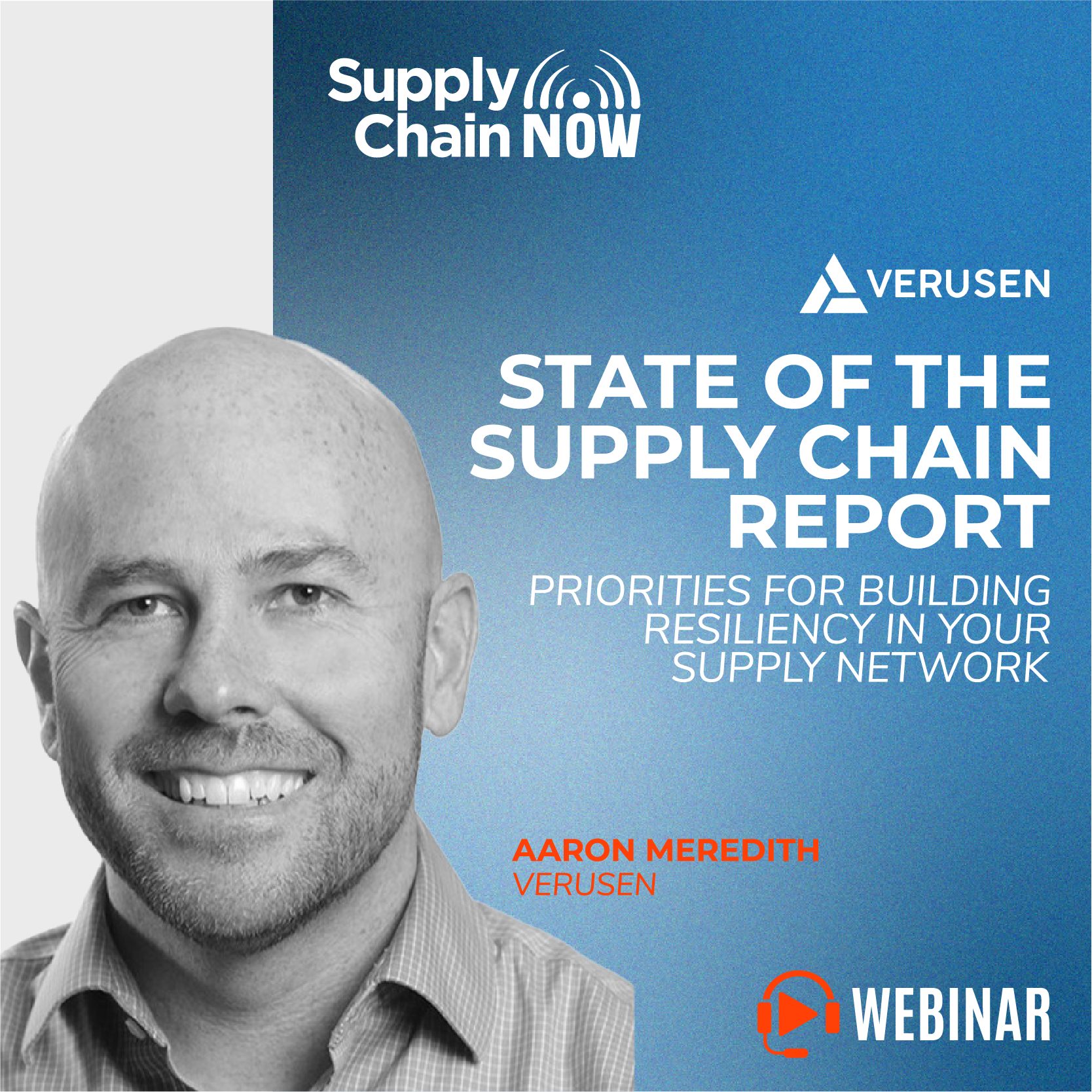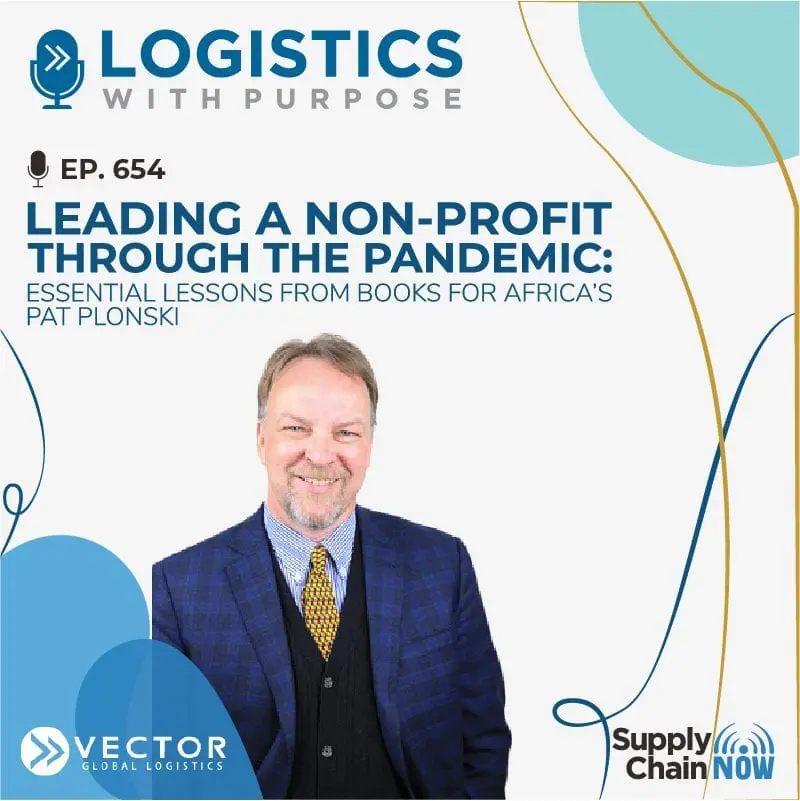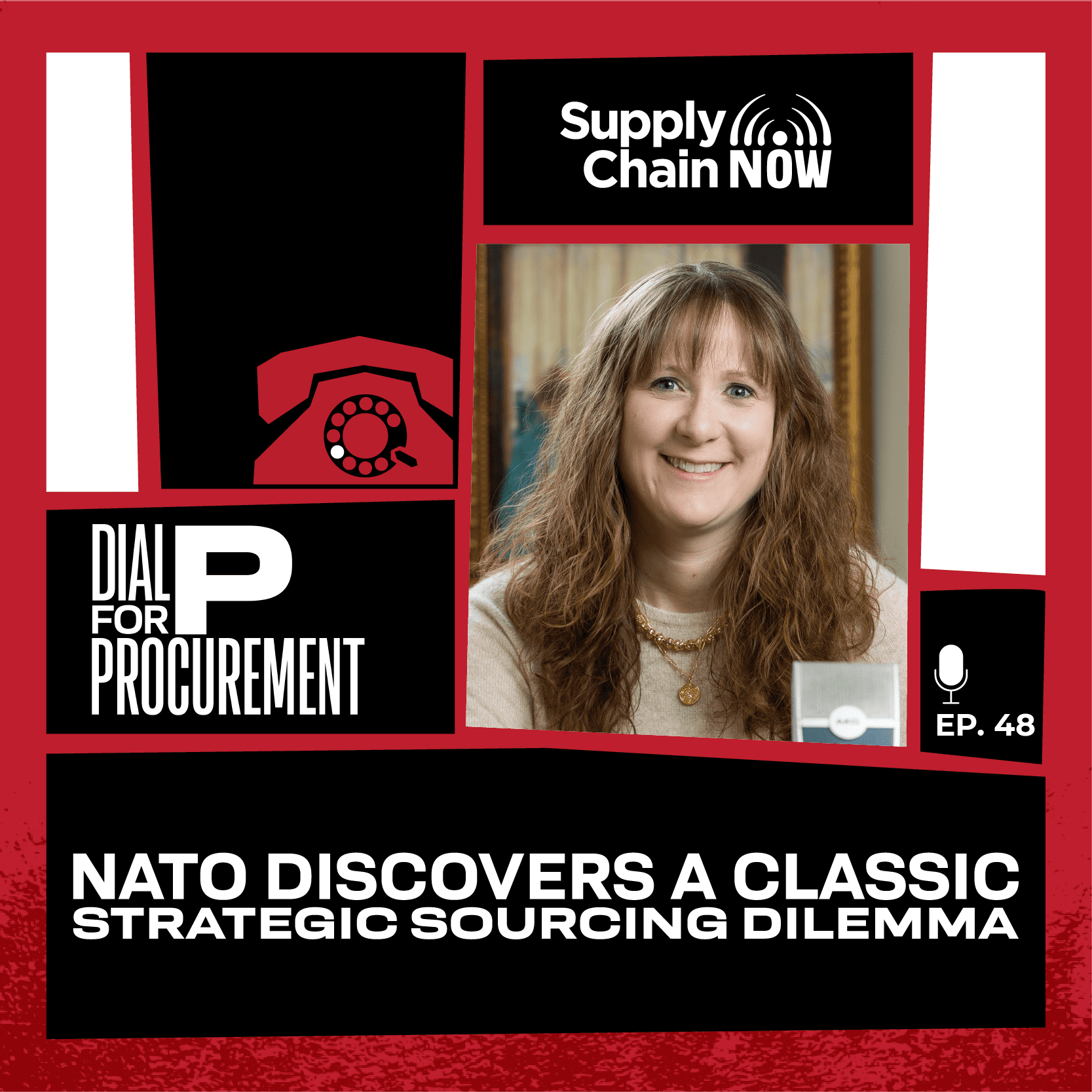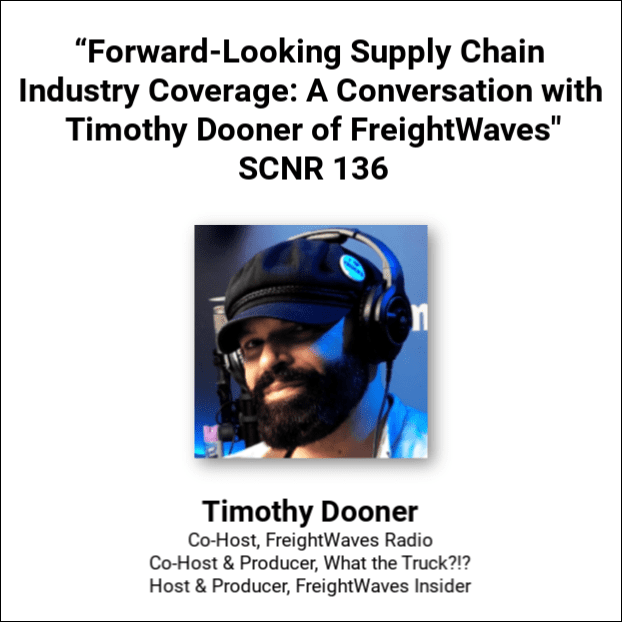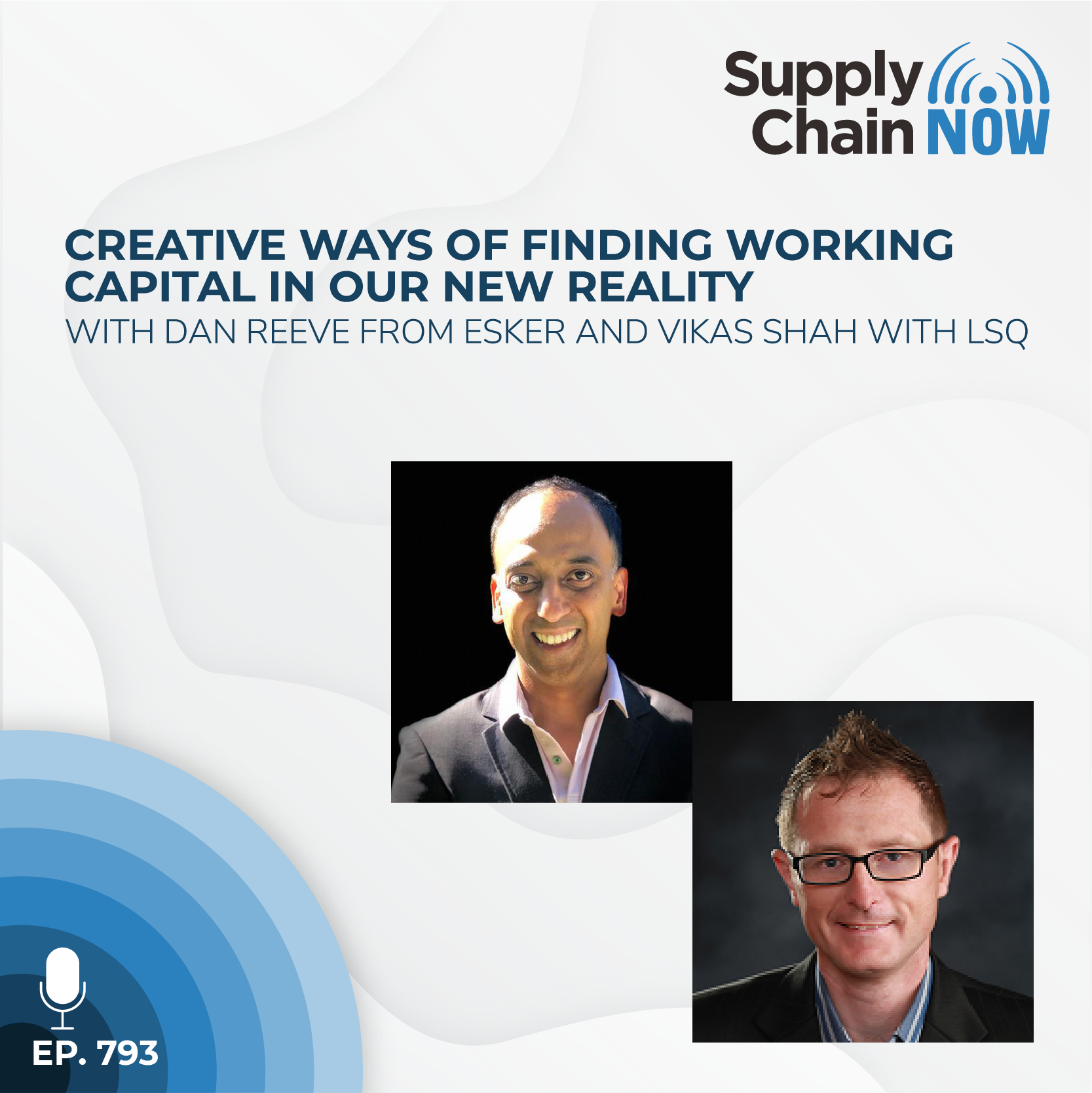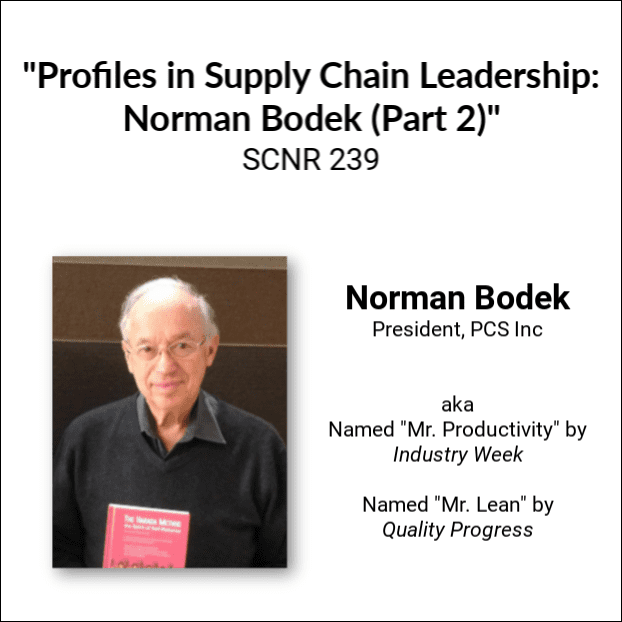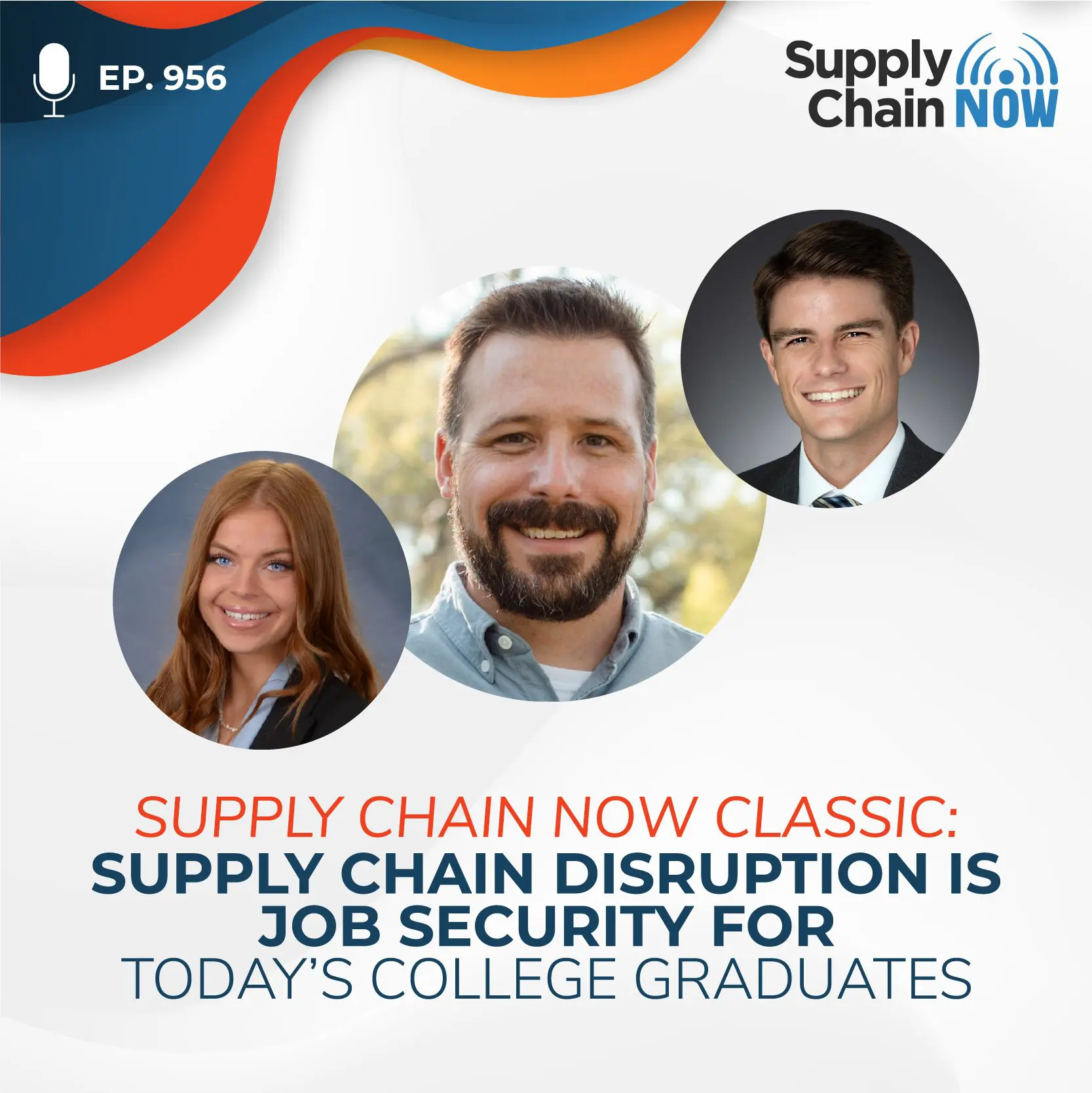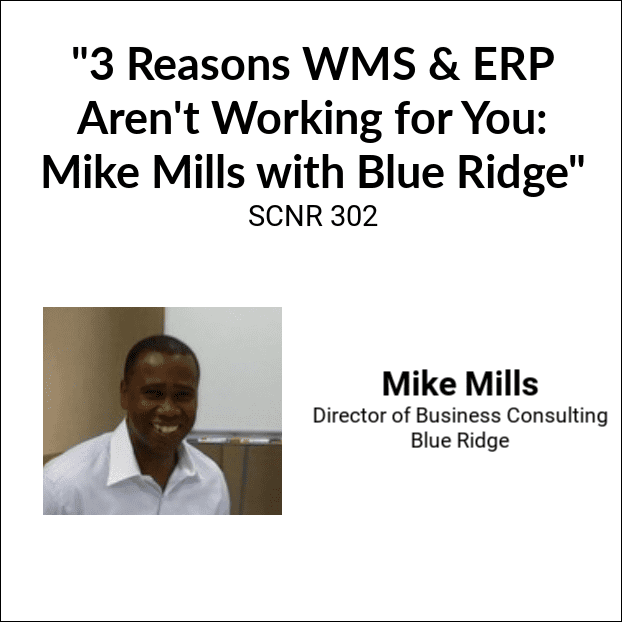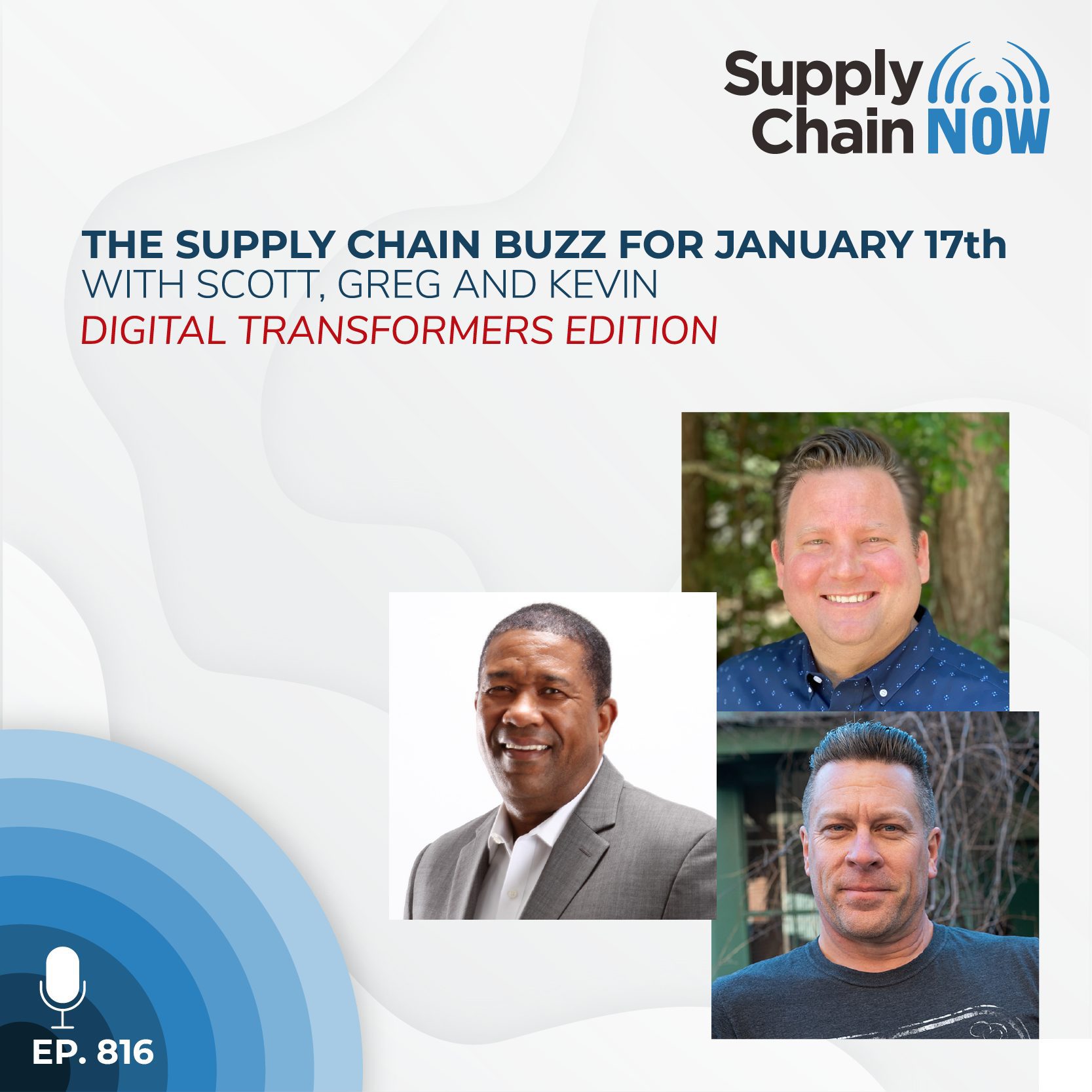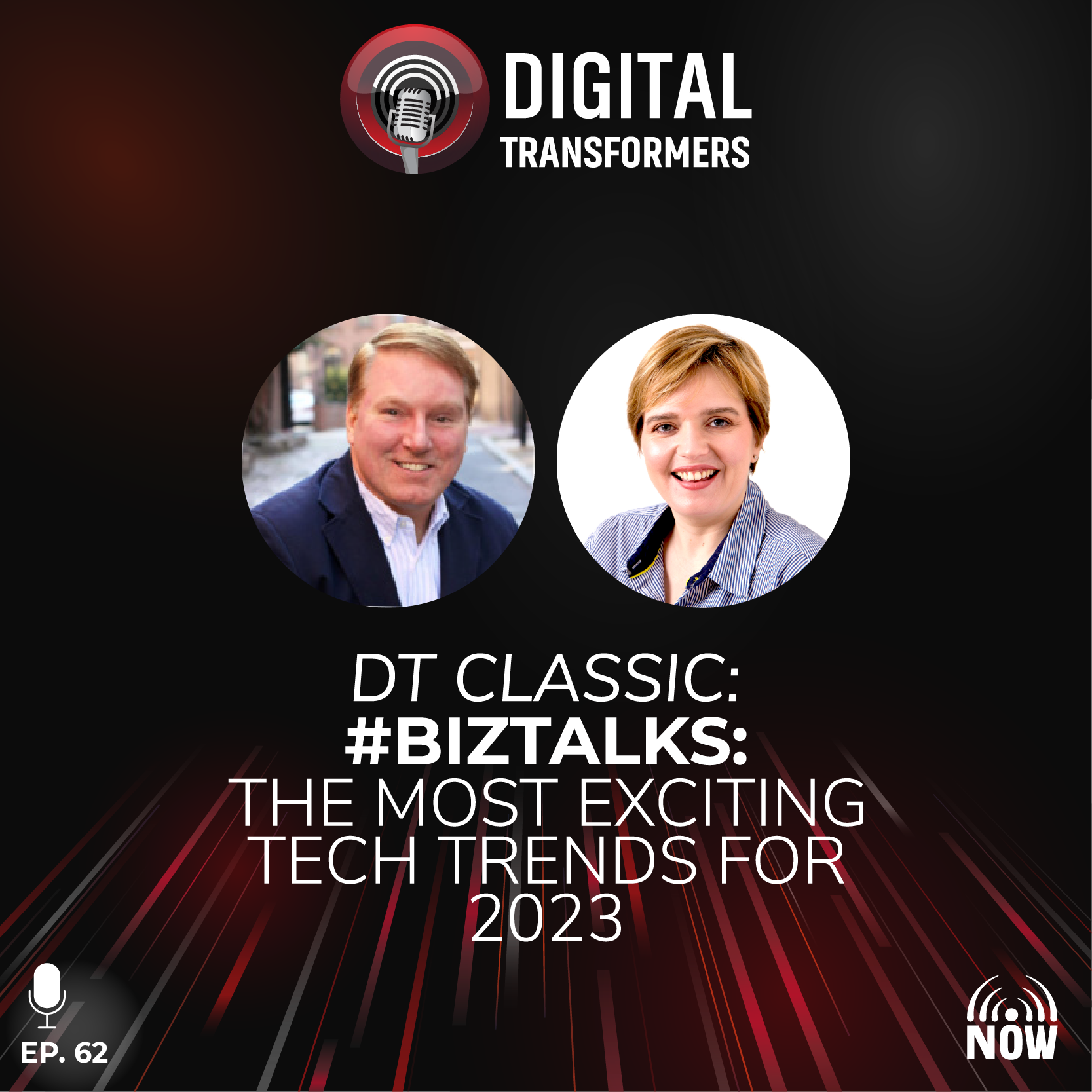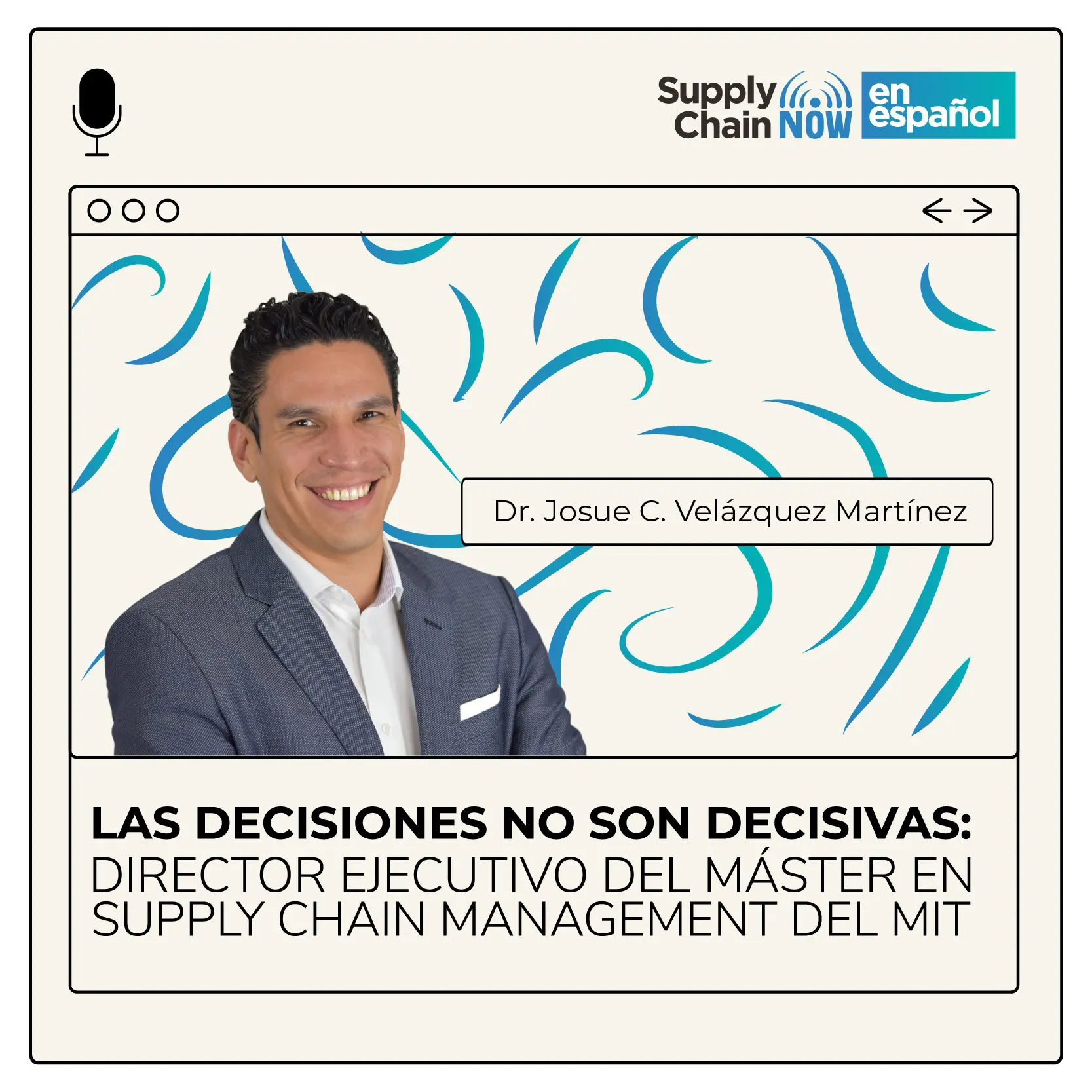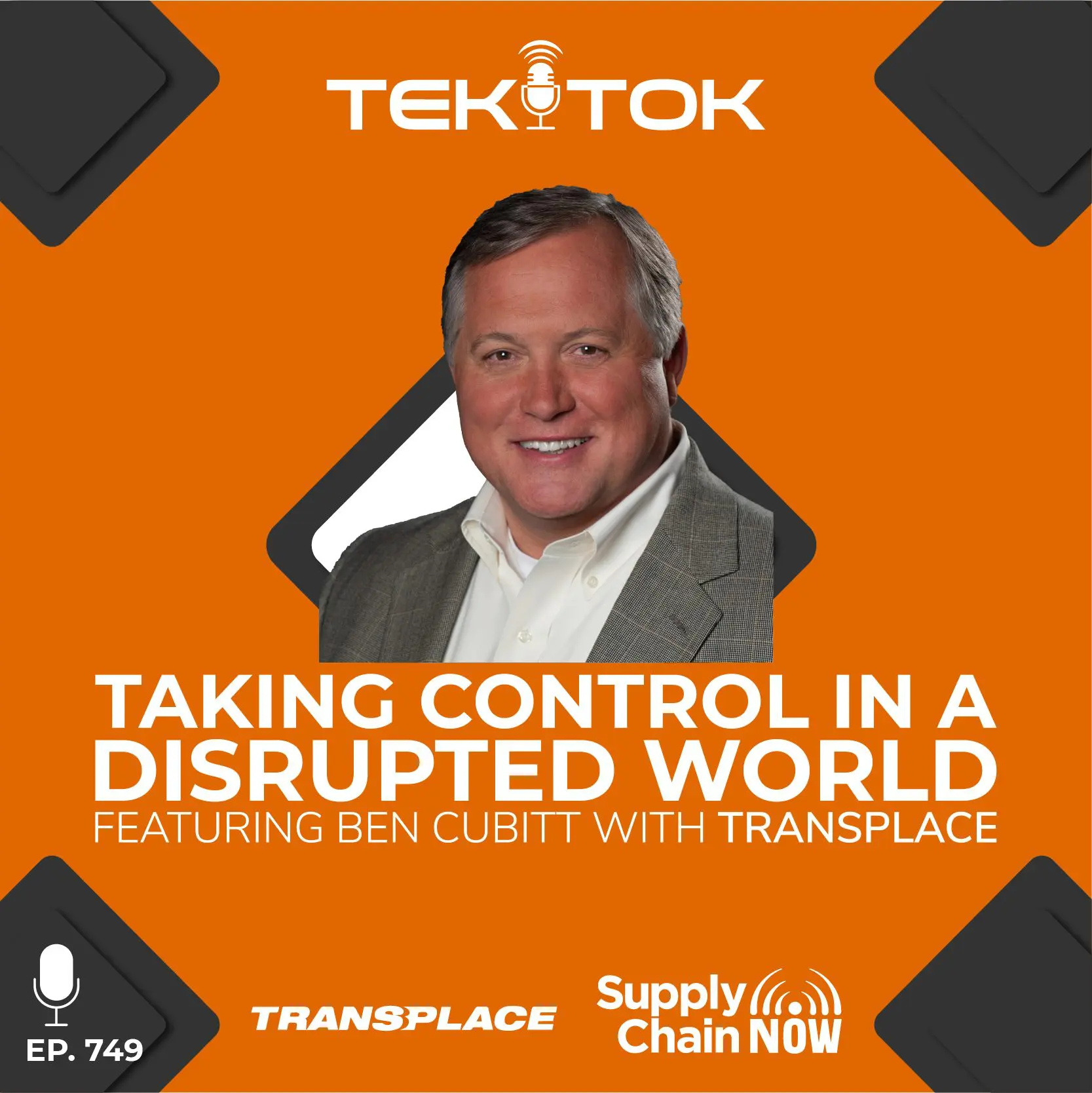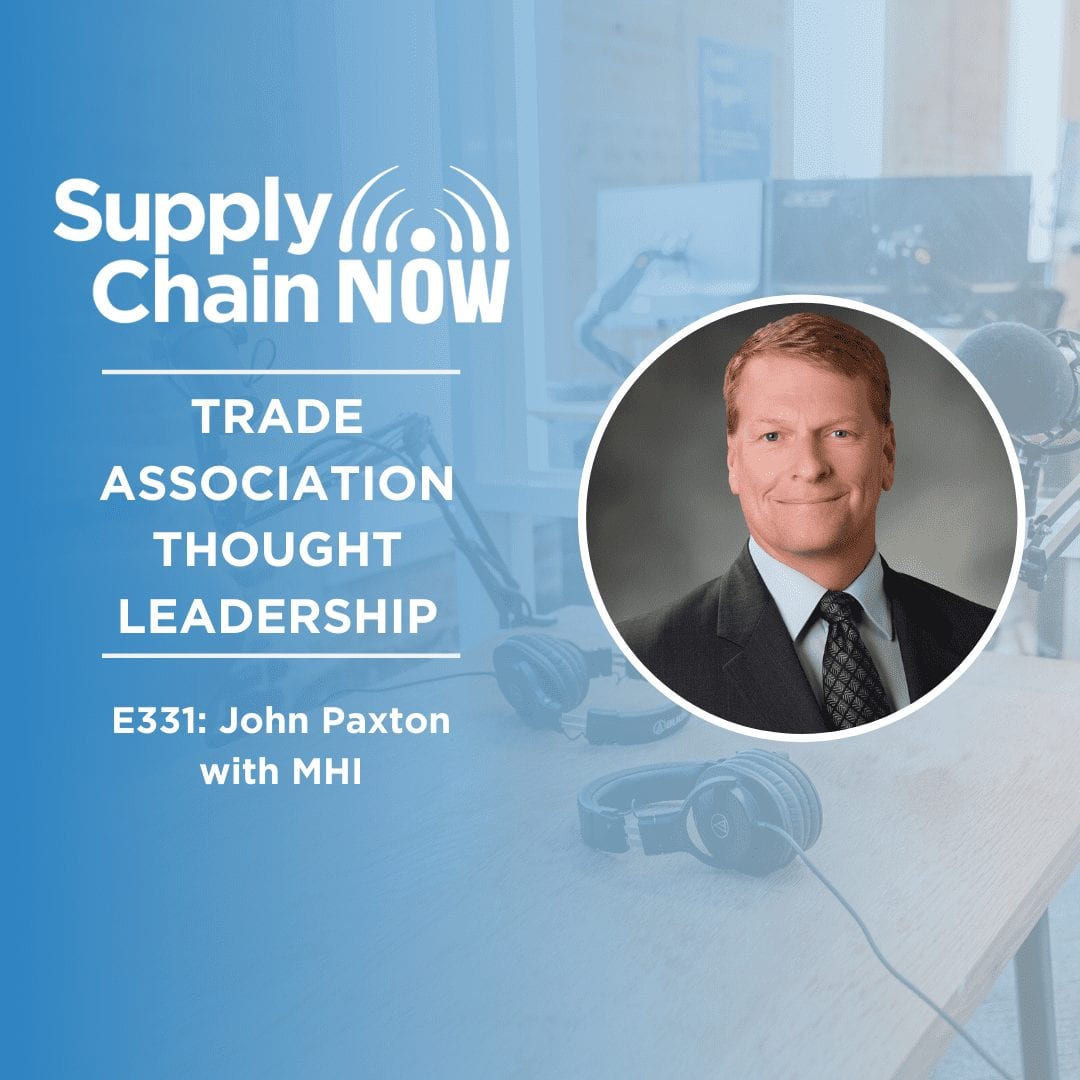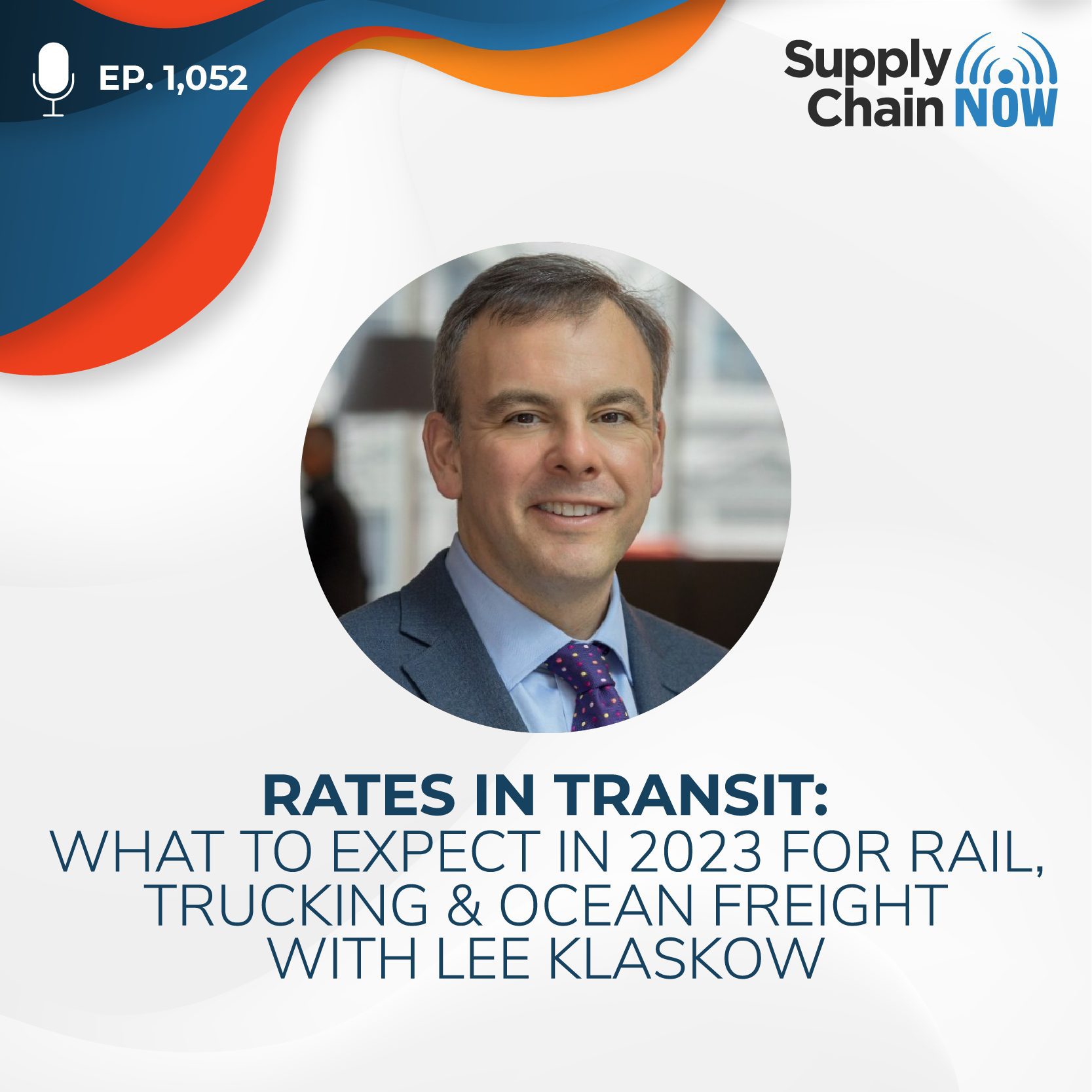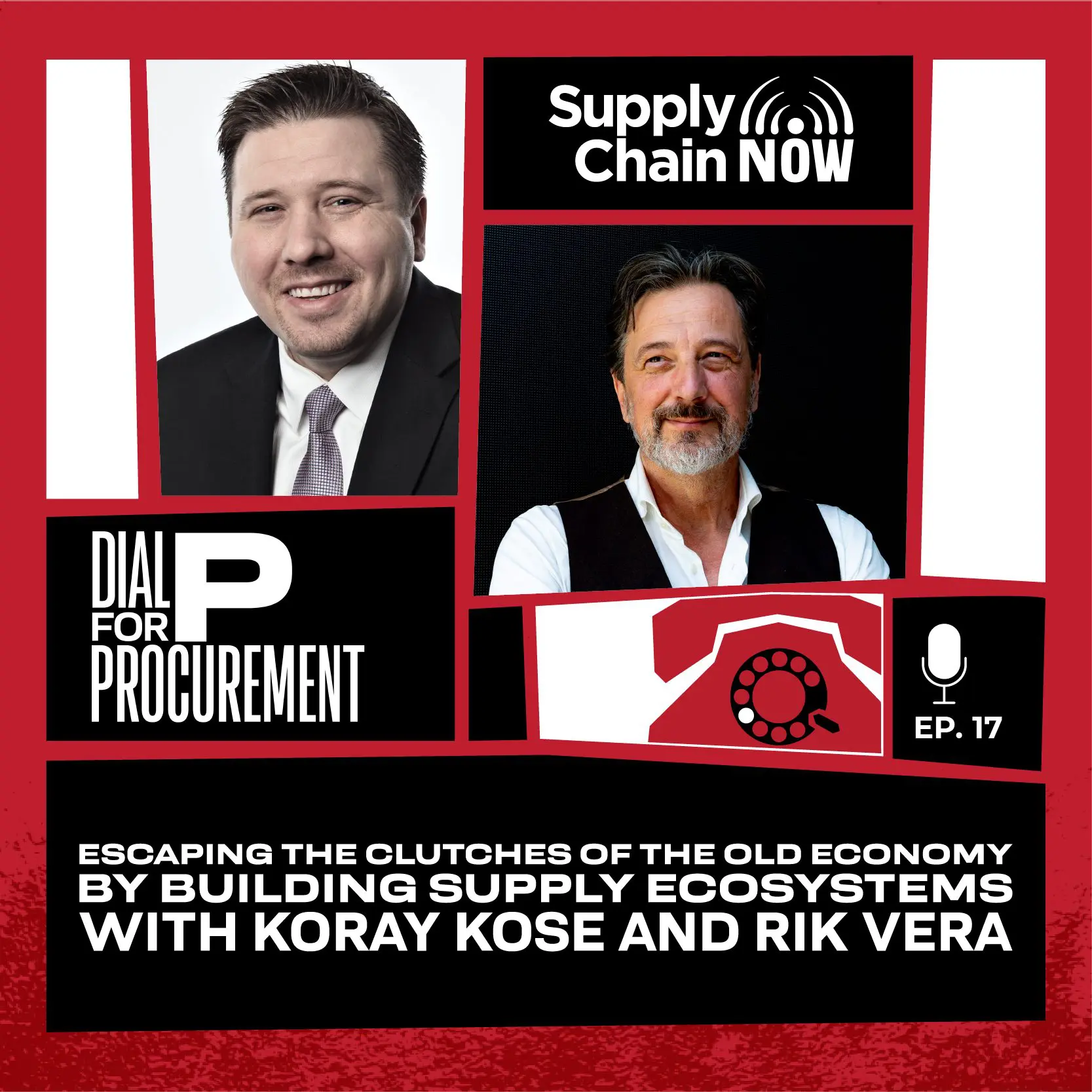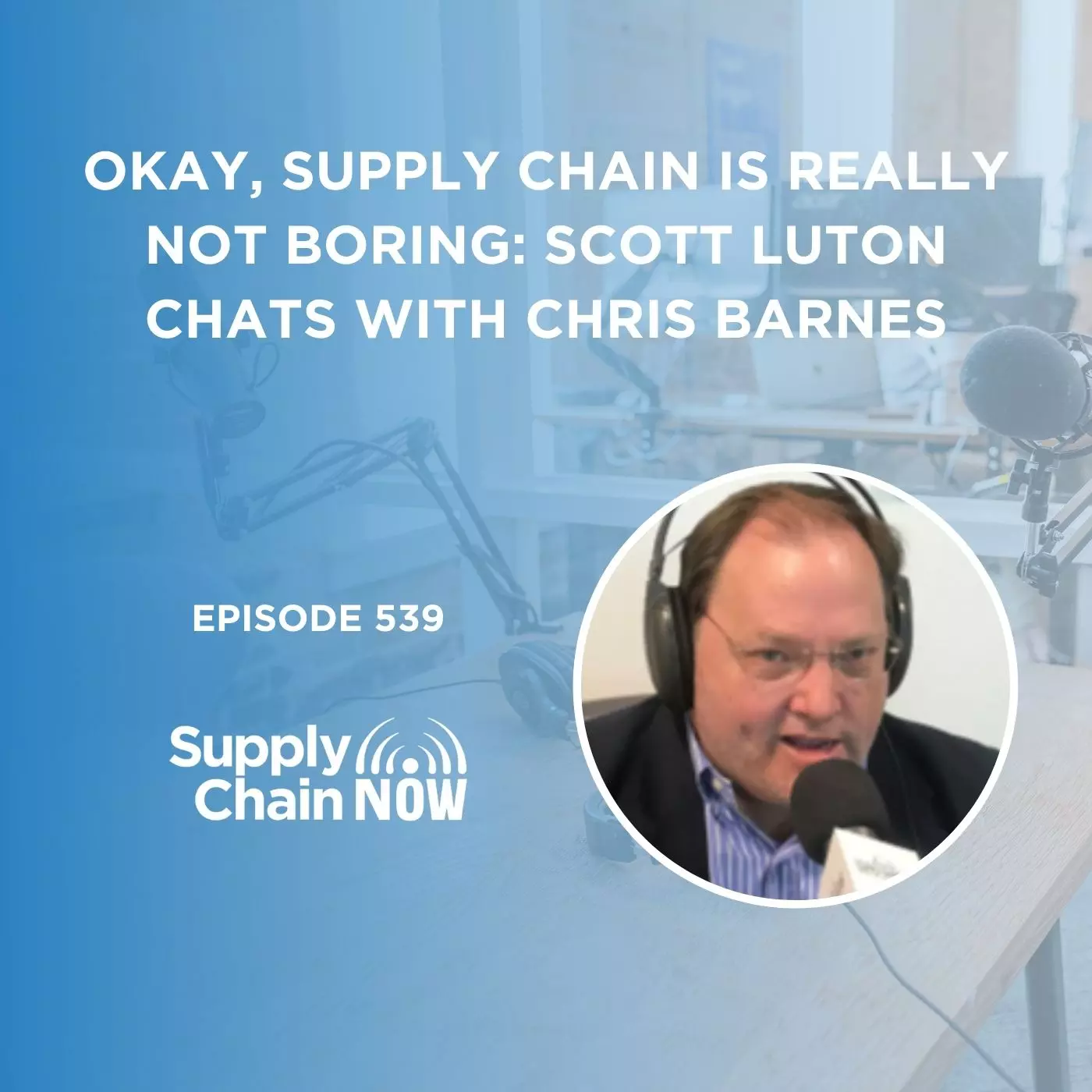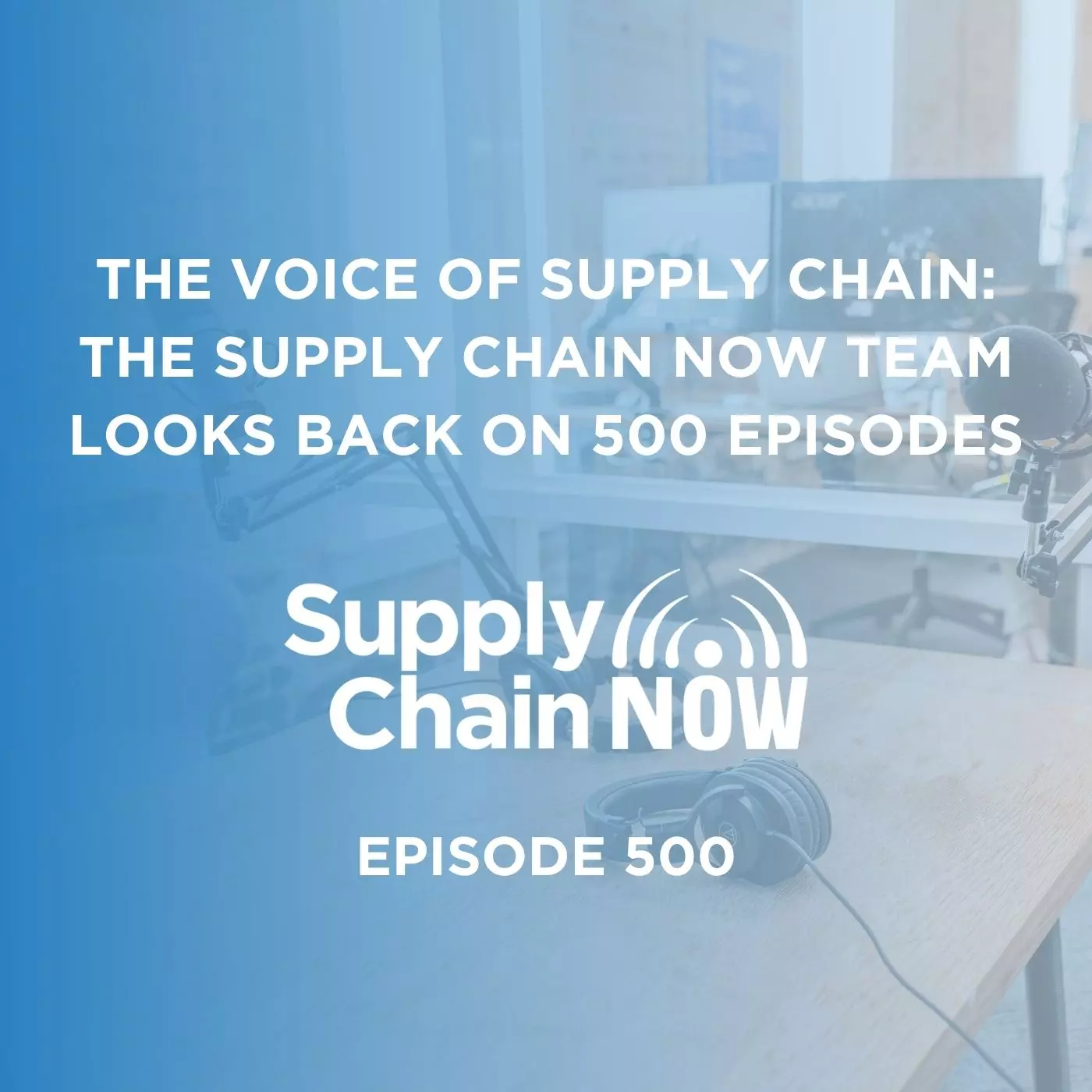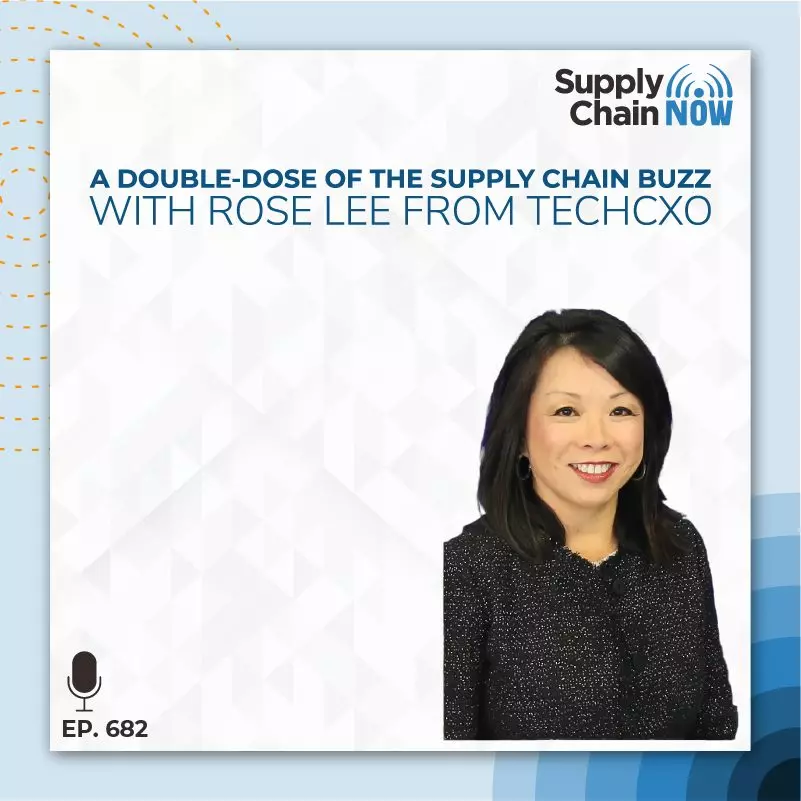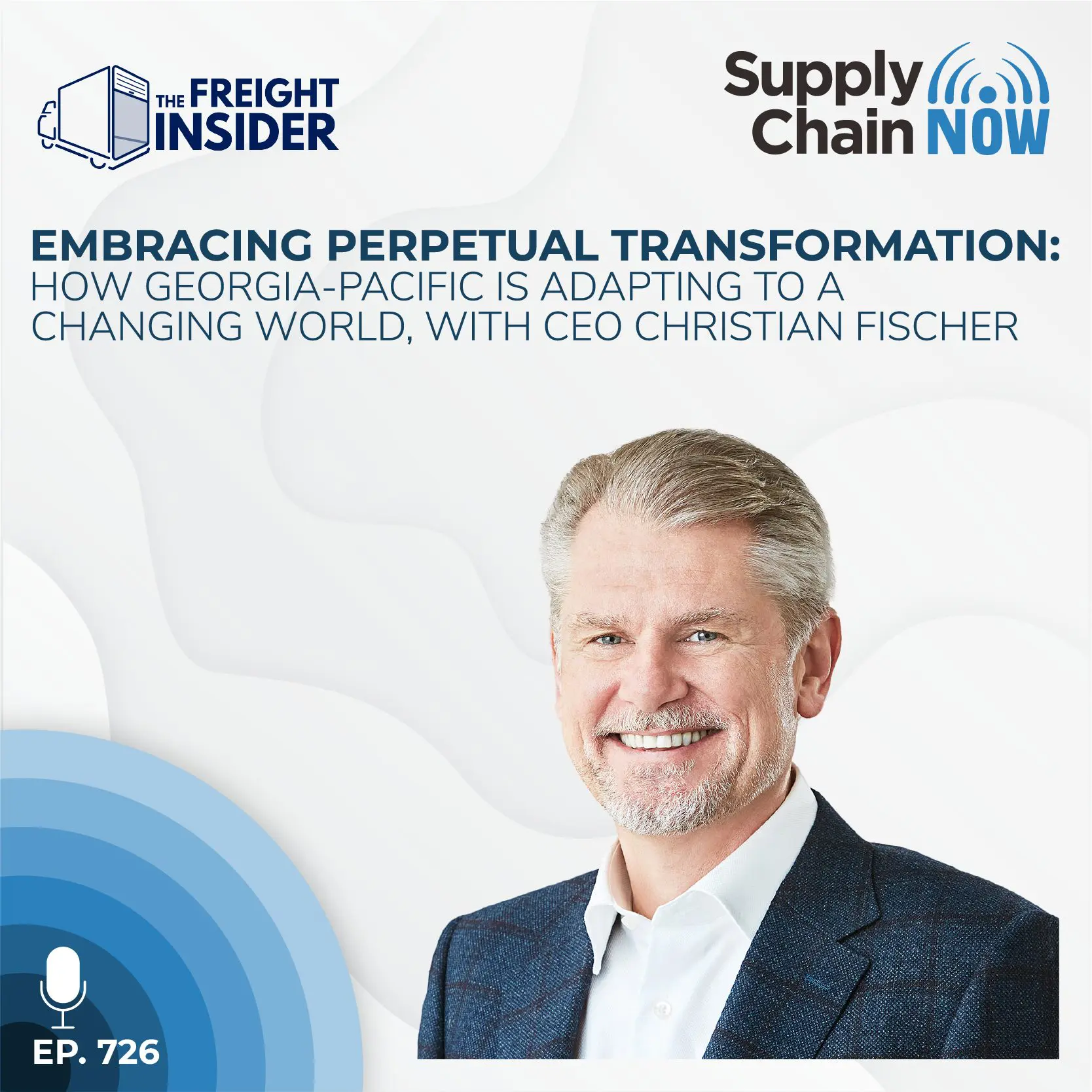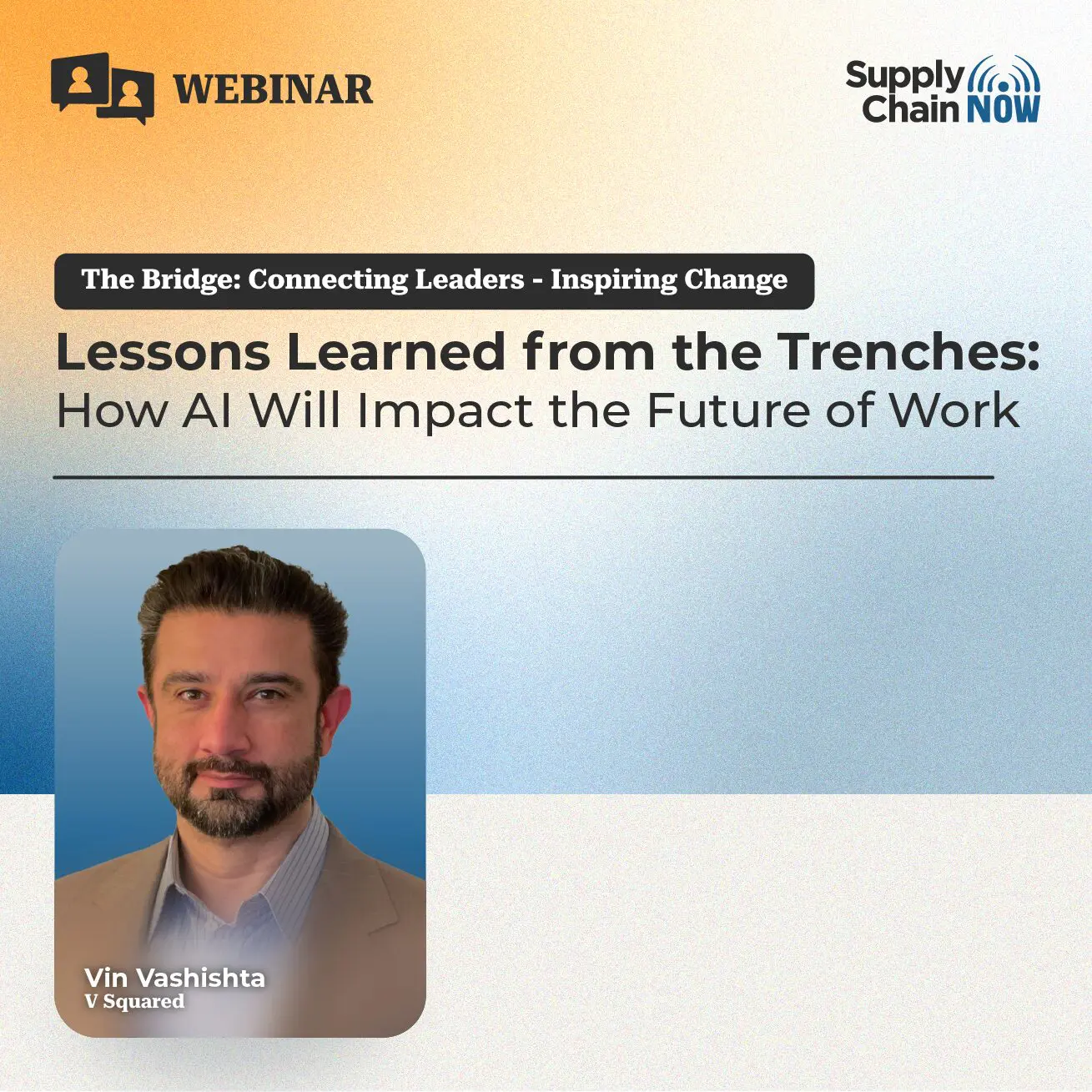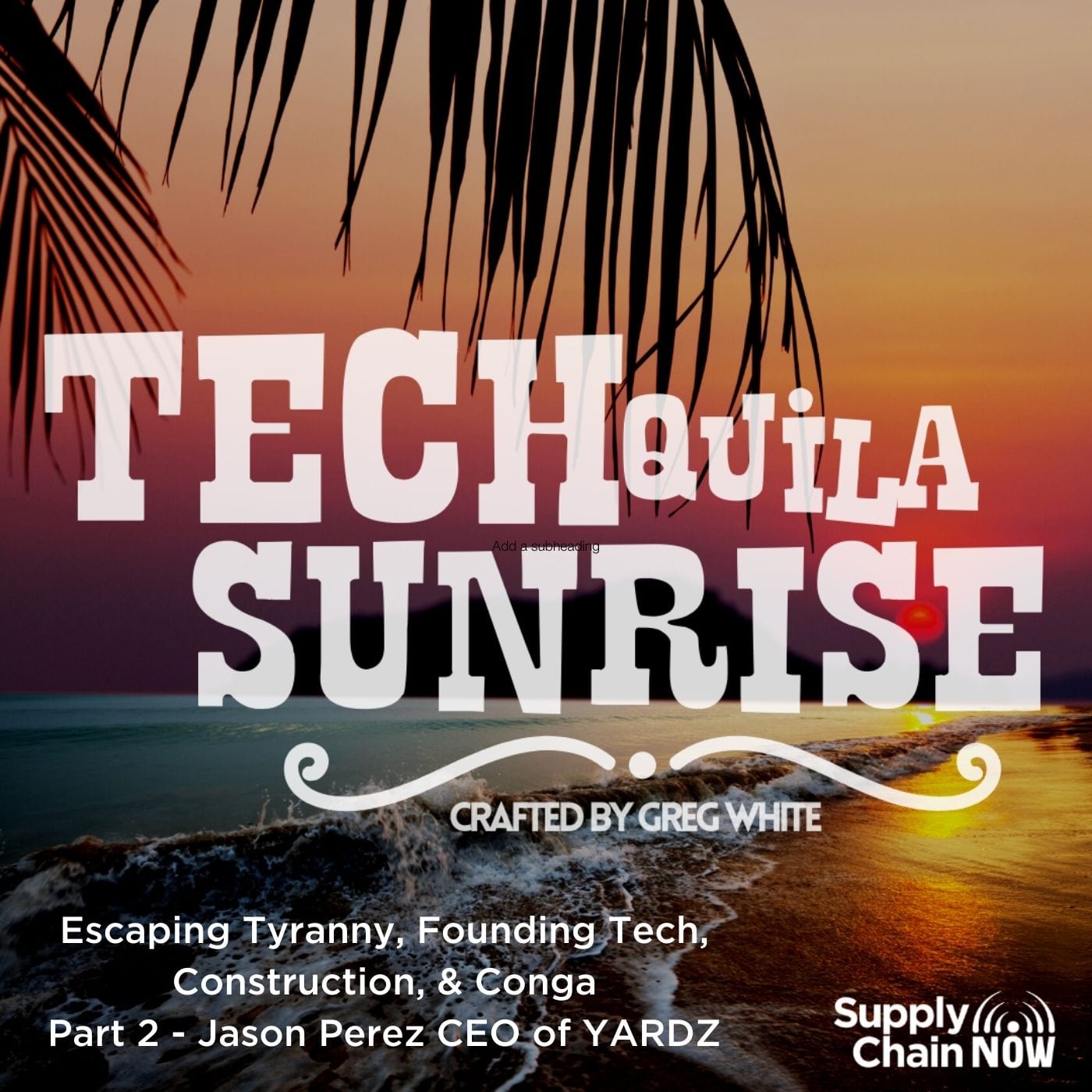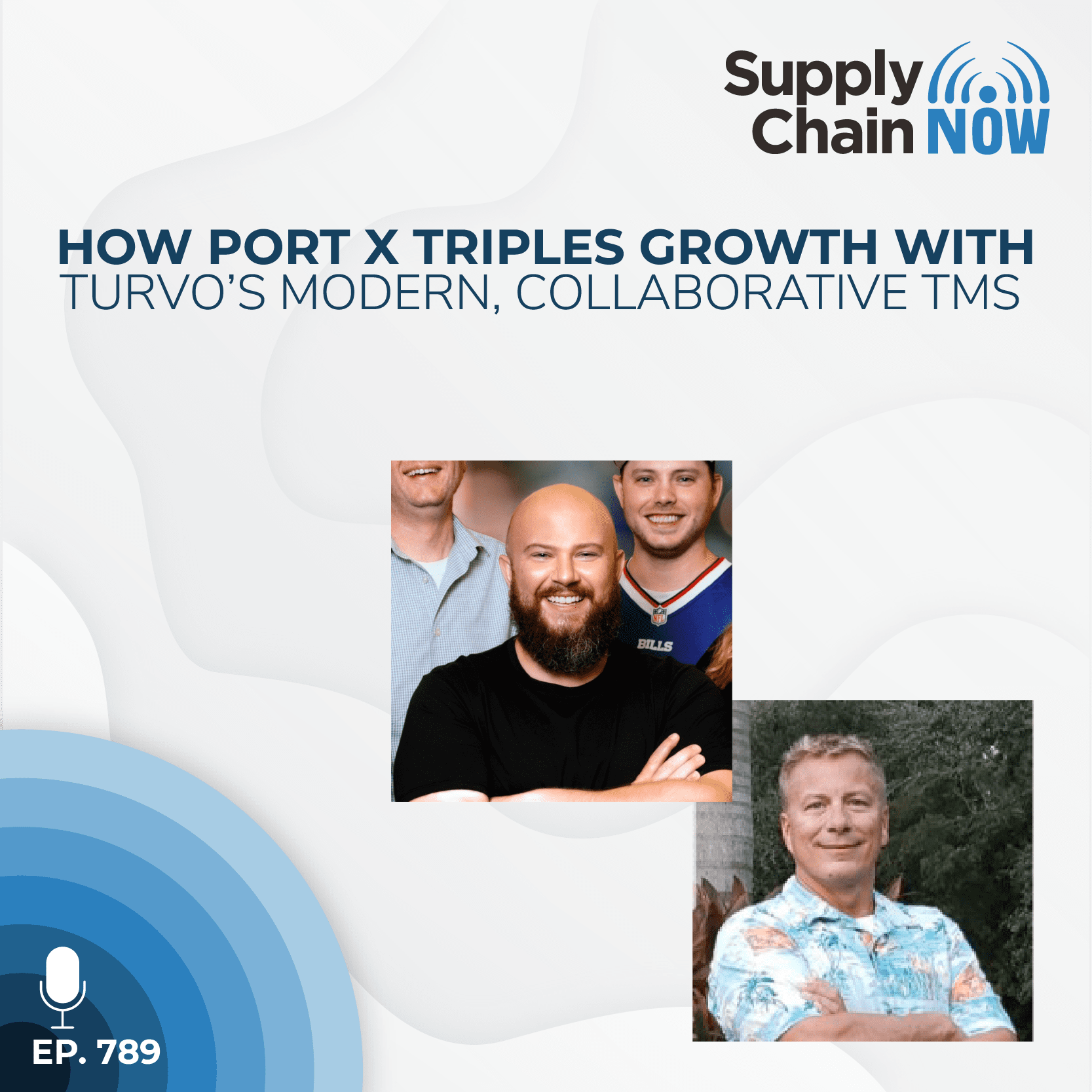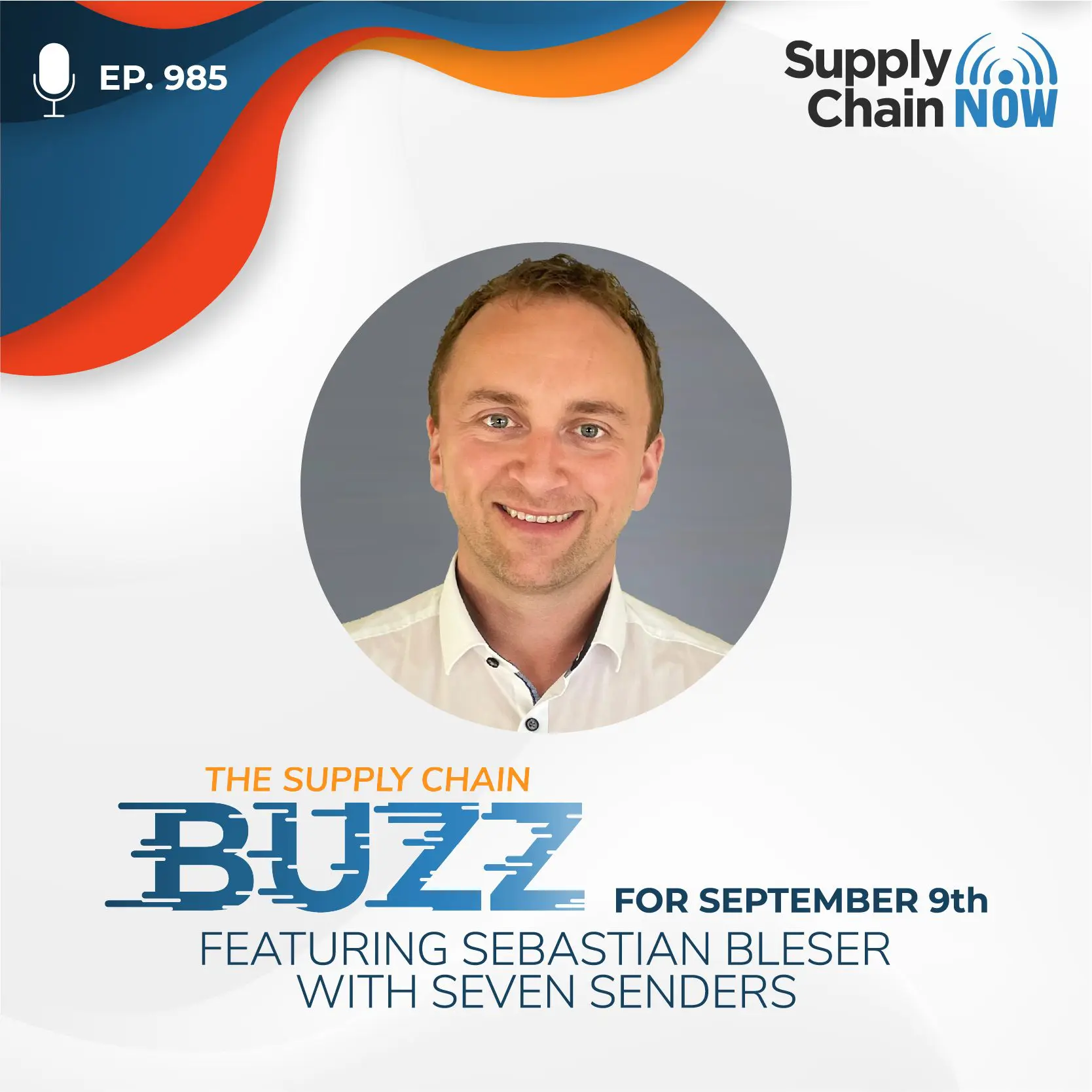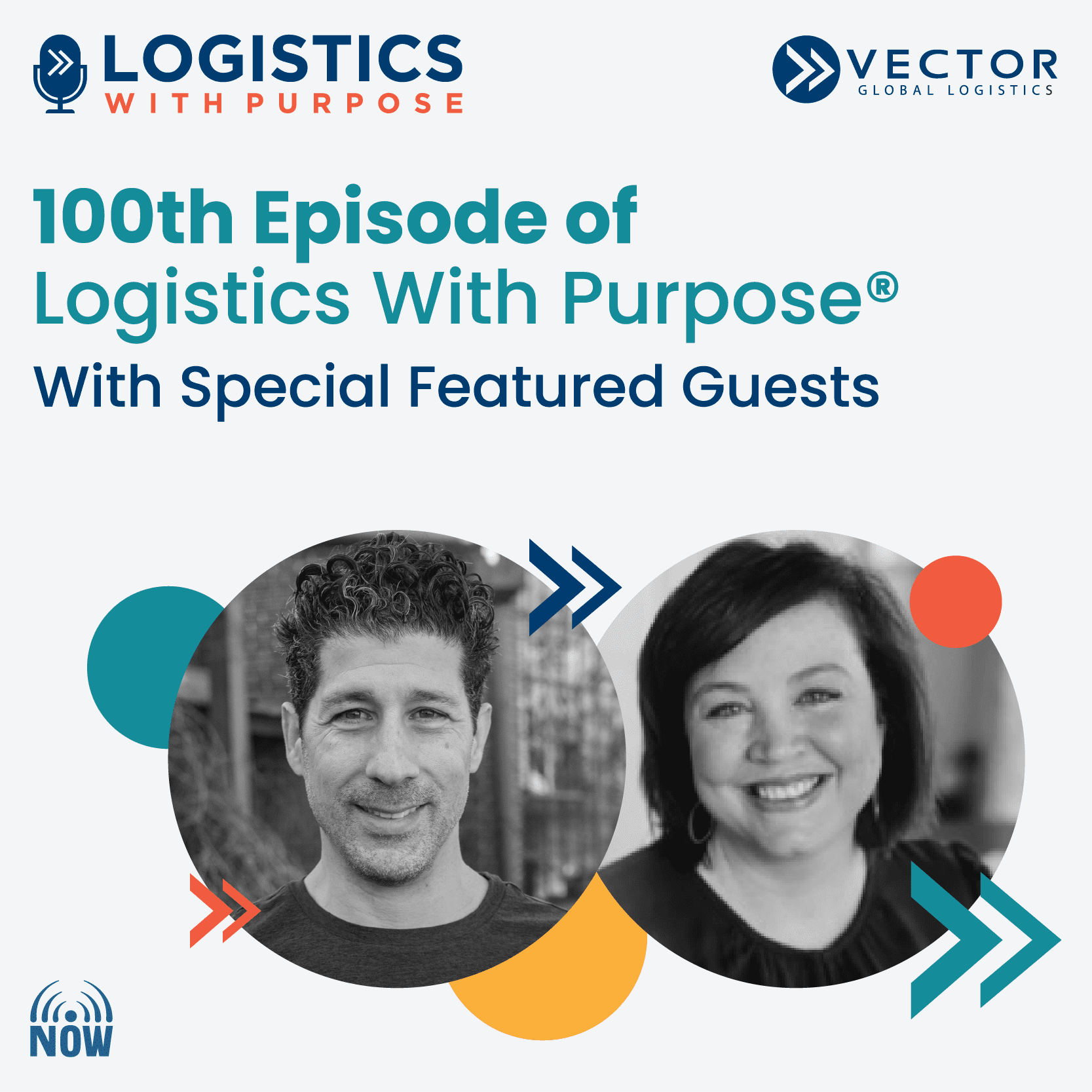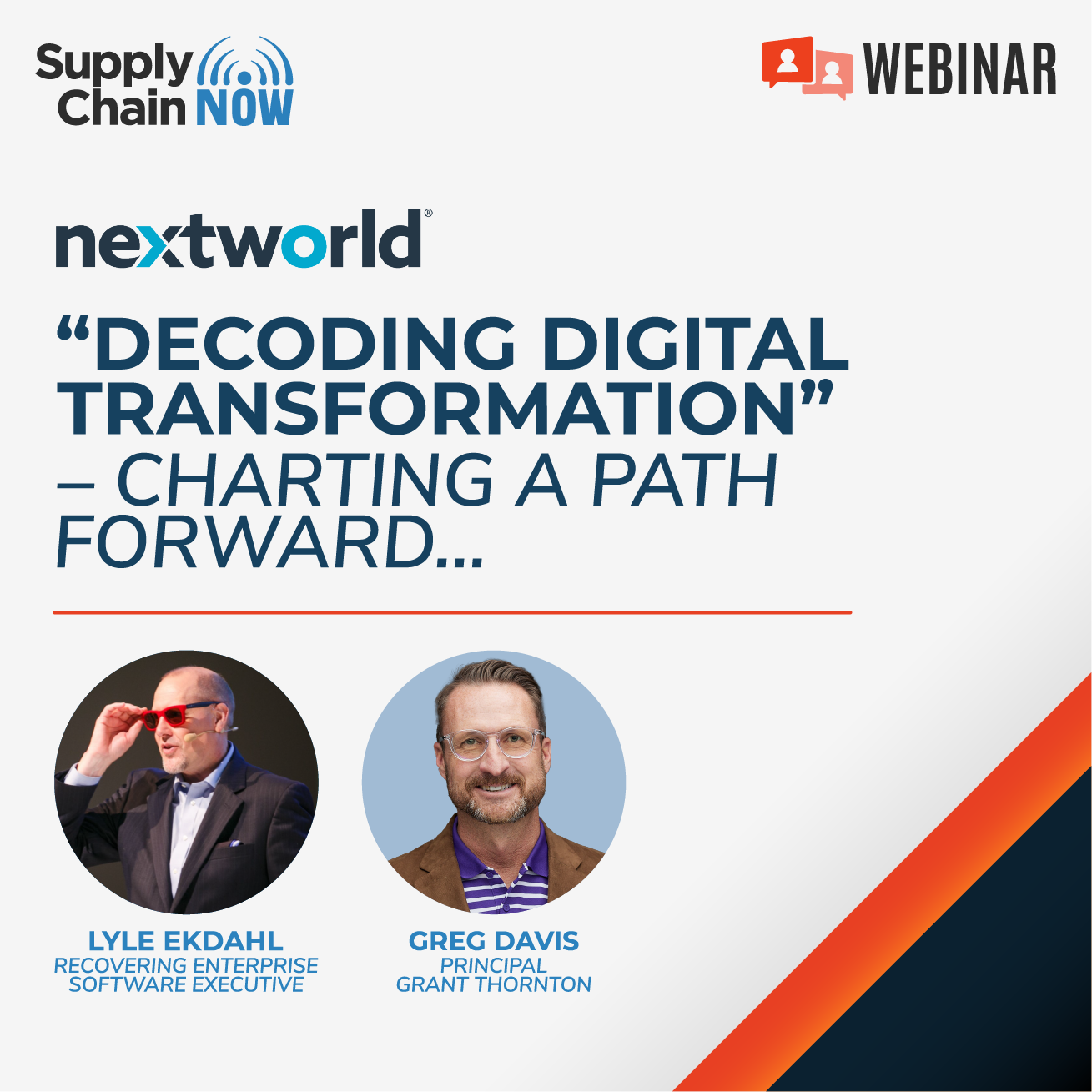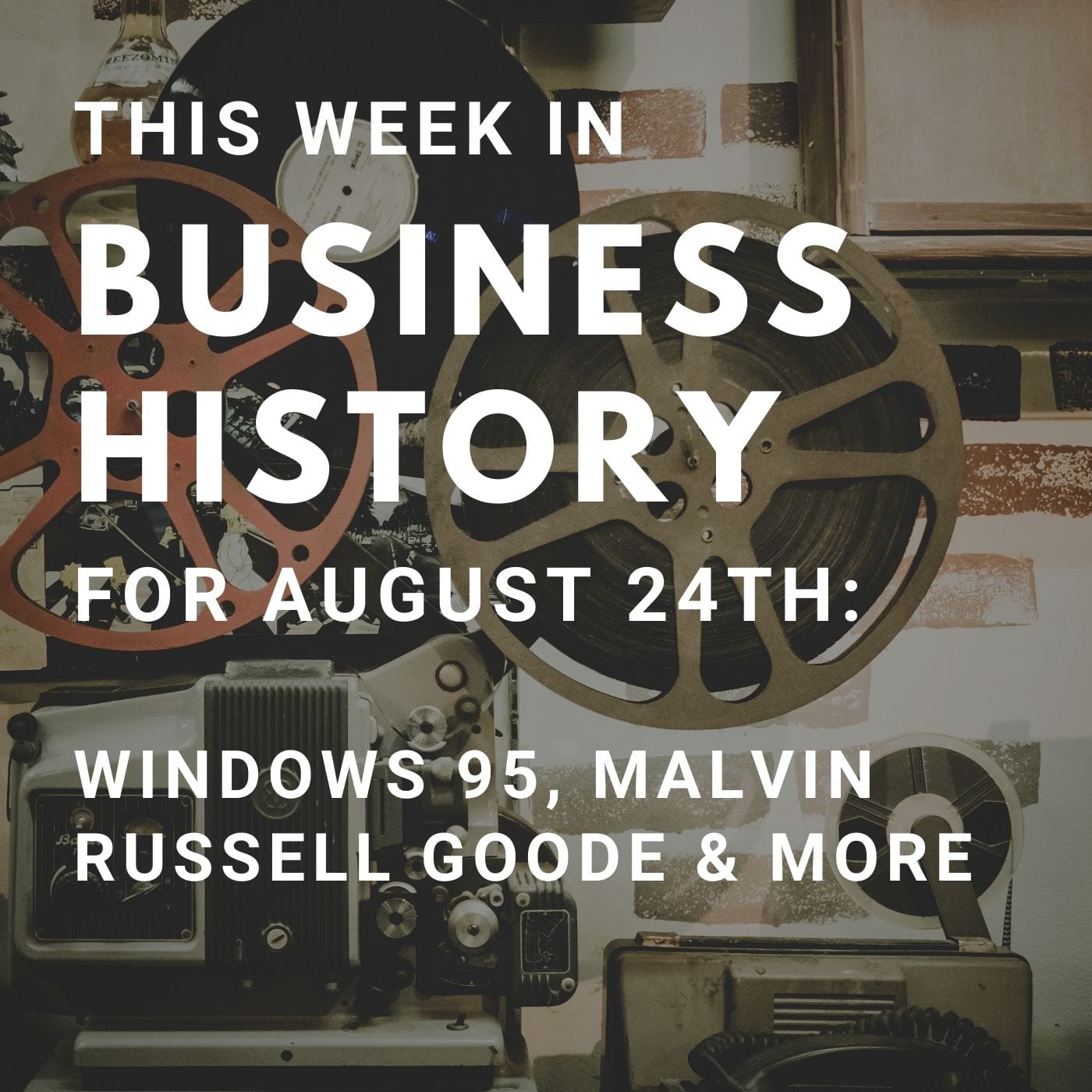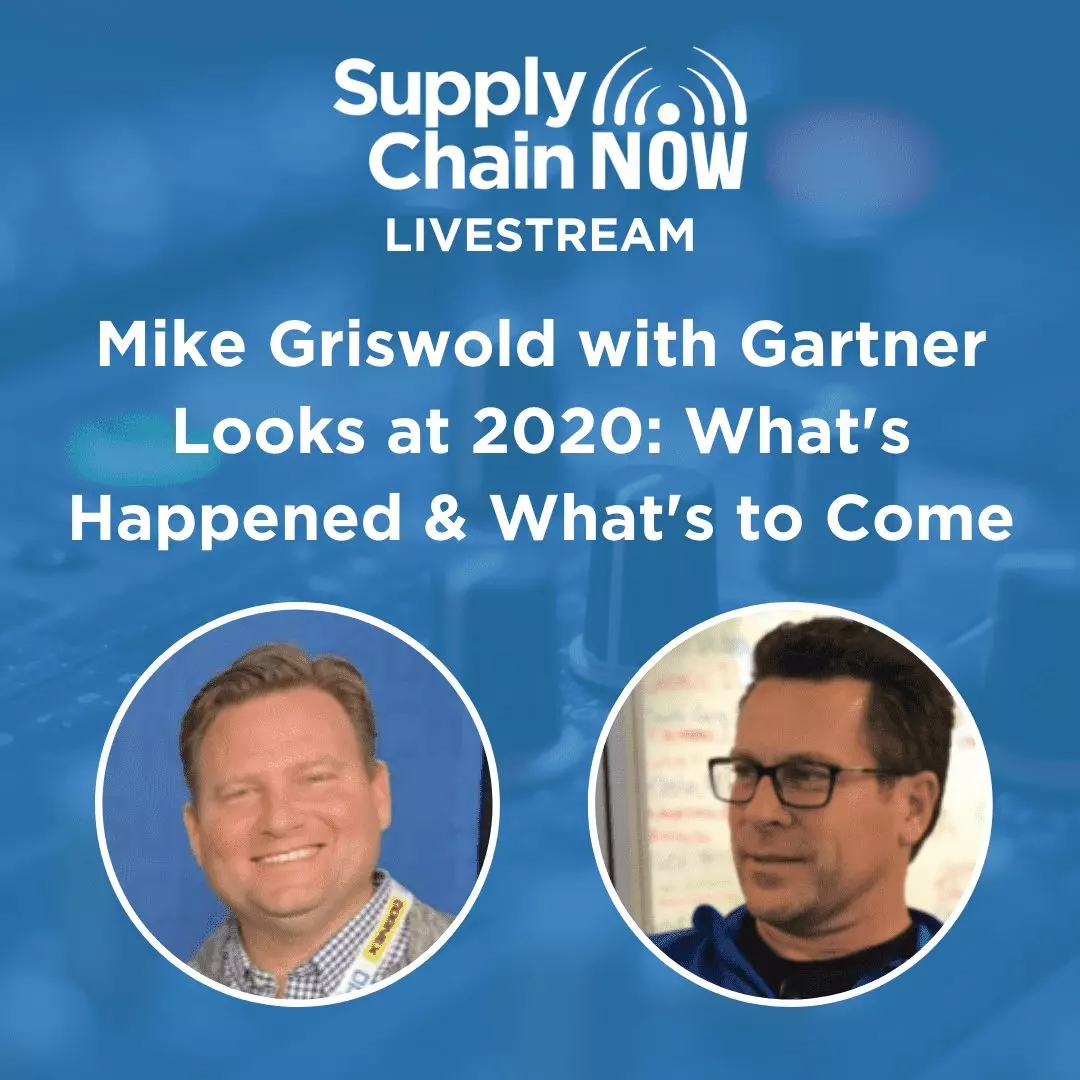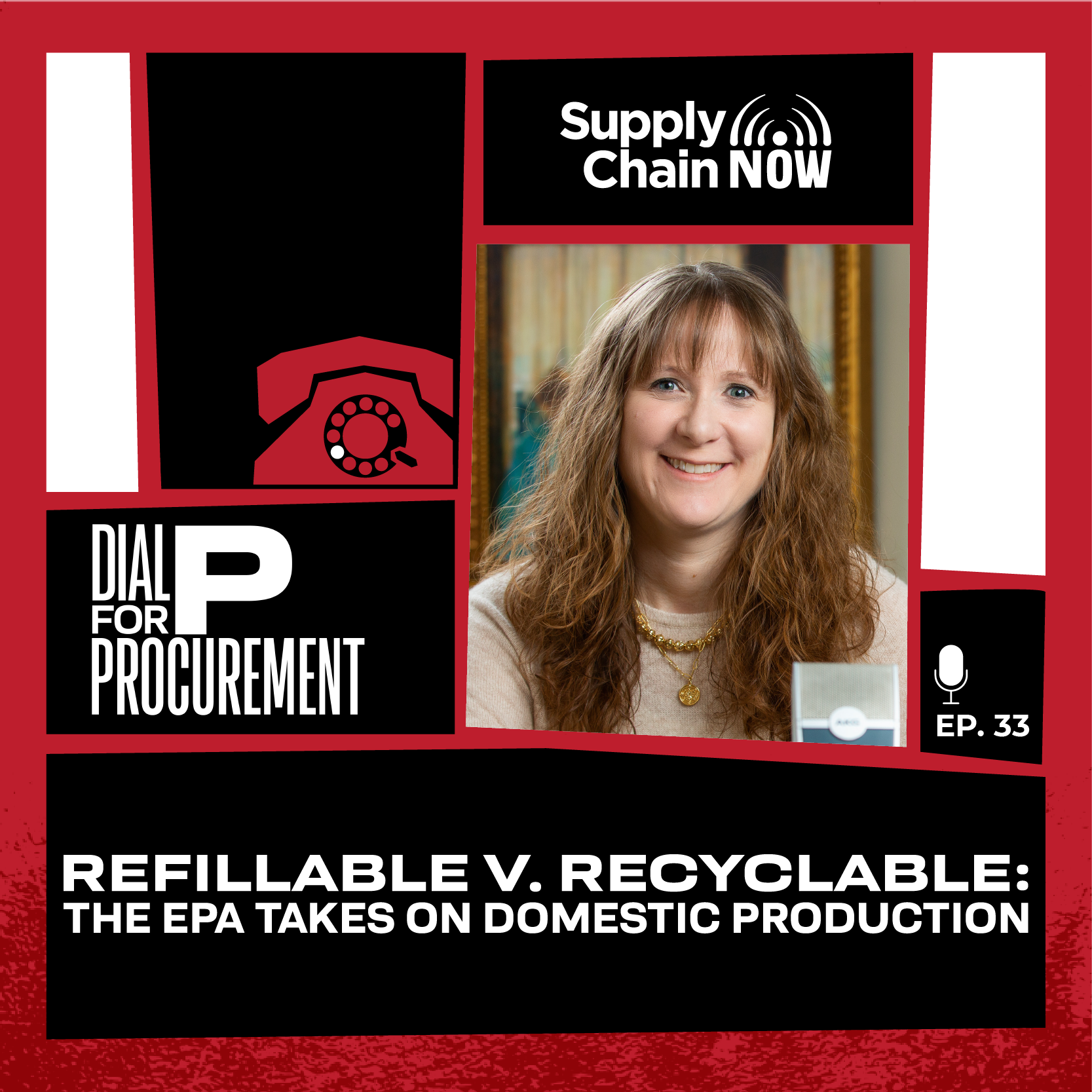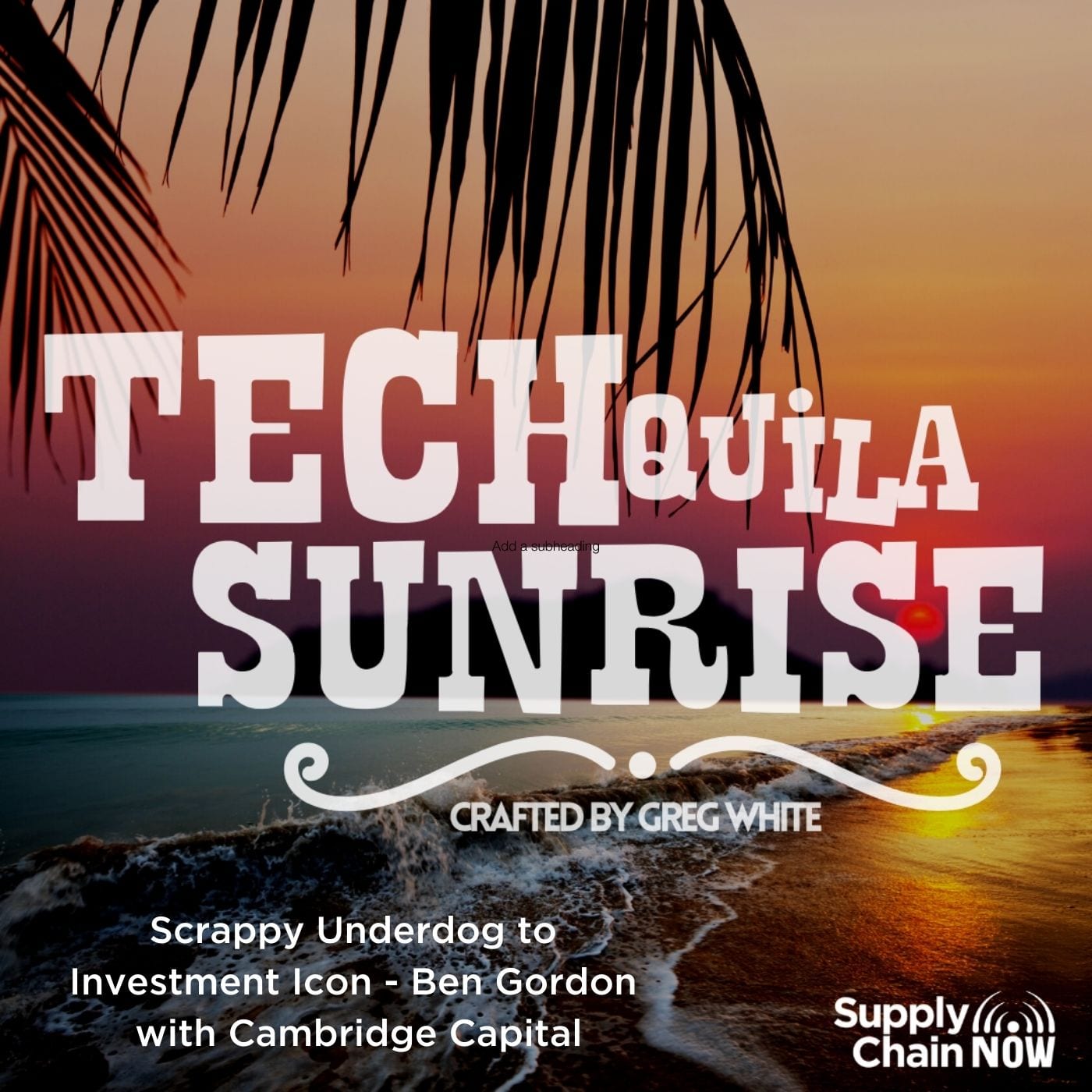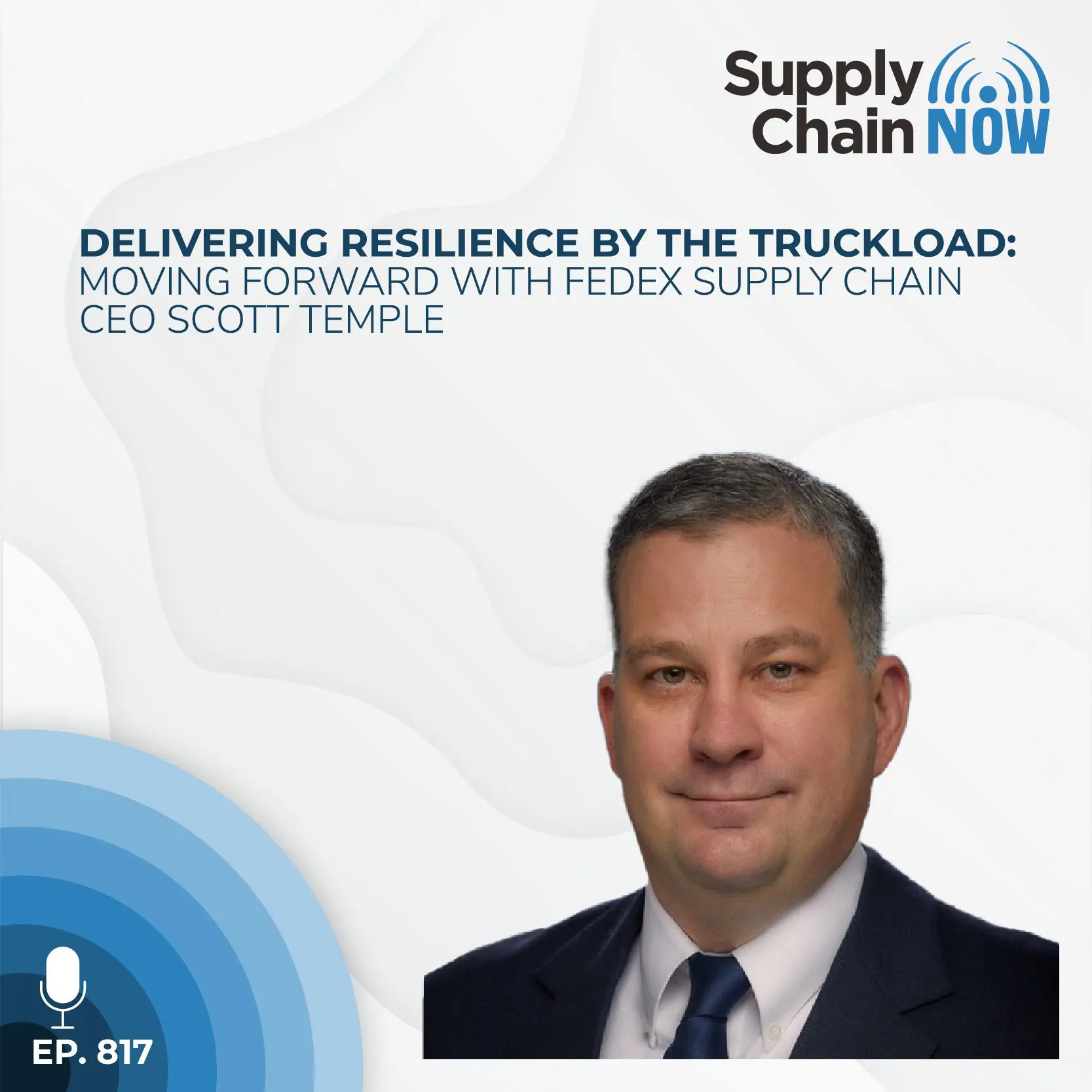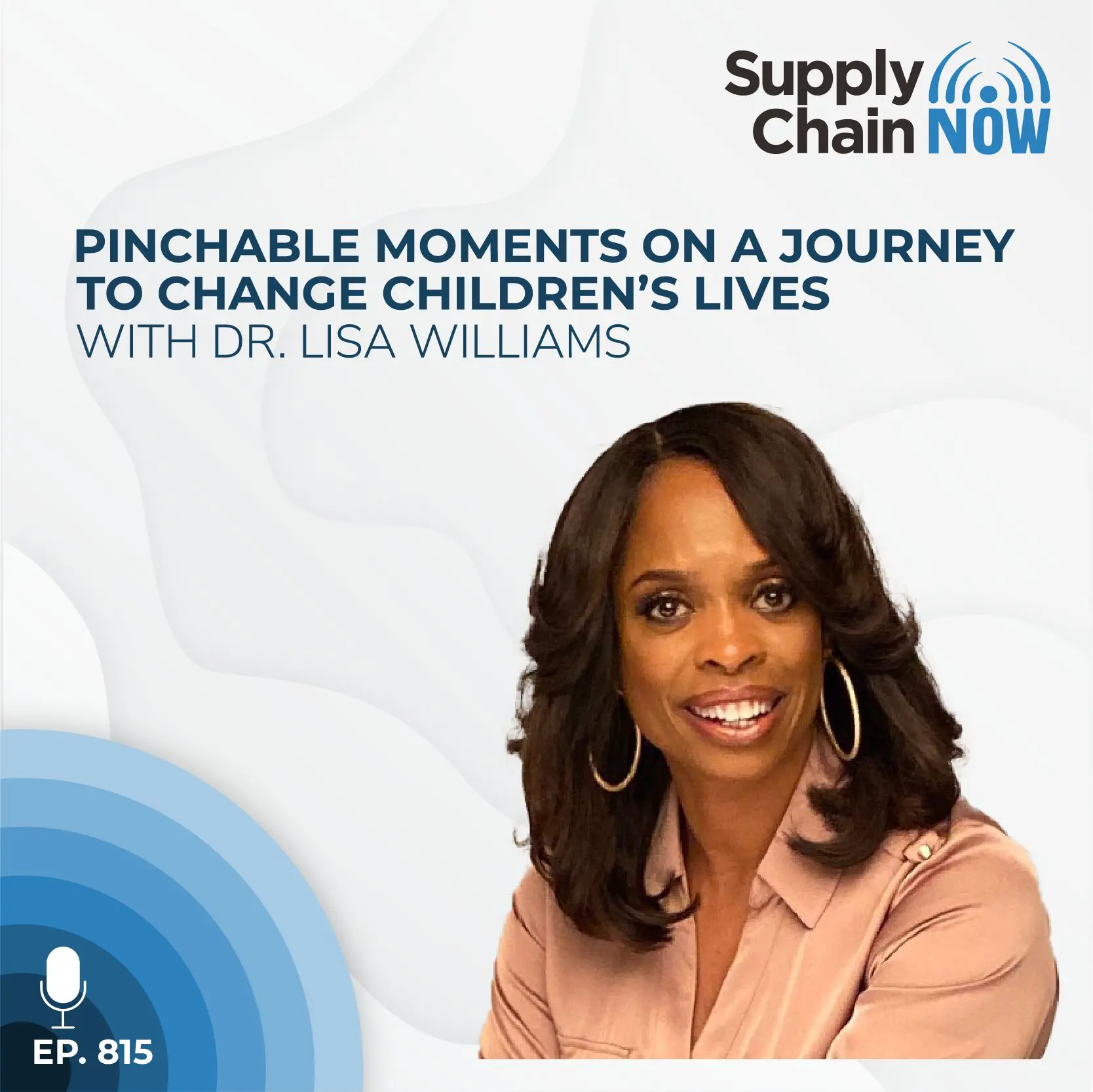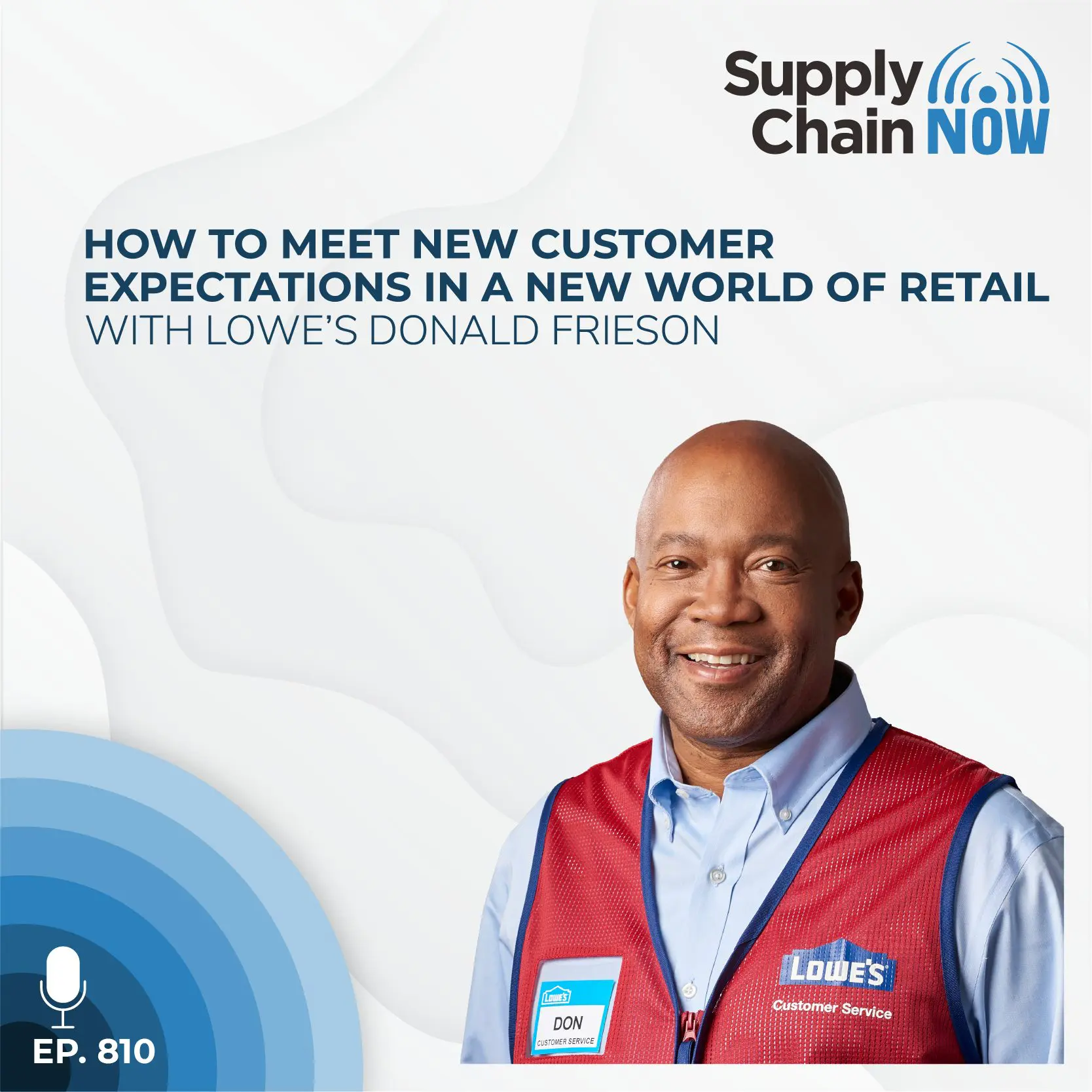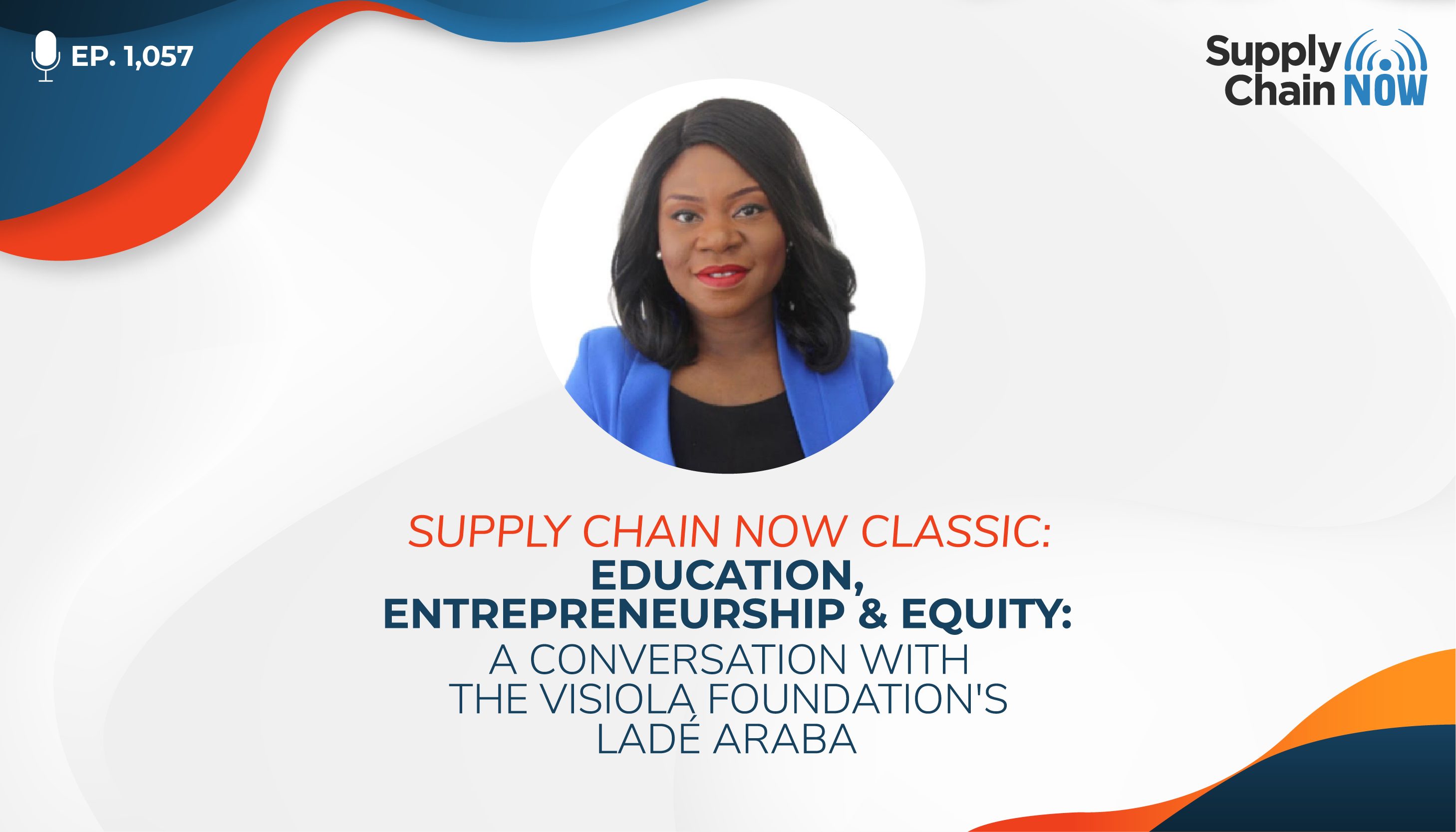
There are many different ways in which you can create a more gendered supply chain. And I think a lot more companies that do this recognize it's not just a social impact engagement. It actually contributes to the bottom line as well. Diversity and inclusion does make good business sense.
-Lade Araba
Episode Summary
There’s a new generation of female entrepreneurs making their way onto the global stage, and we have Ladé Araba to thank for it. As the co-founder of The Visiola Foundation, she’s helping African girls take the reins of their education and build careers in STEM. In this Supply Chain Now classic episode, join Scott and special co-host Matilda Arhin as they chat with Ladé about her fascinating upbringing in Rome, the genesis of The Visiola Foundation, her supply chain observations, advice for aspiring leaders and more.
Episode Transcript
Intro/Outro (00:03):
Welcome to supply chain. Now the voice of global supply chain supply chain now focuses on the best in the business for our worldwide audience, the people, the technologies, the best practices, and today’s critical issues. The challenges and entities Stay tuned to hear from those making global business happen right here on supply chain now.
Scott Luton (00:33):
Hey, good morning, everybody. Scott Luton and special guest host. Matilda Arhin with you here on supply chain. Now. Welcome to today’s show Matilda. Hey doing
Matilda Arhin (00:42):
I’m great. Scott, how about yourself?
Scott Luton (00:44):
Doing wonderful. It is so neat to be back. Co-hosting a show with you. It’s been a long time since the last time. I wanna say the last time you’re with us. We were interviewing Jackie Robinson’s family. Do you remember that Matilda?
Matilda Arhin (00:58):
Yes, I do. And I did another one with Enki but we had fun. Yeah,
Scott Luton (01:03):
We did. We know we’ve got an excellent show teed up here. This is gonna be a bit of a special, unique episode, perhaps of logistics with purpose, which is always sponsored by our dear friends at vector global logistics. So this episode we’ve got teed up today. We’re gonna be speaking with a leader of a nonprofit that’s on a mission to fuel the emergence of a new cadre of leaders across Africa. In particular, this organization aims to increase female entrepreneurs across the vibrant continent of Africa. Of course, in entrepreneurship is critical for all industries, especially global supply chain, as we work on solving old and new challenges. So stay tuned for a fascinating discussion. Matilda. I’m gonna welcome in our guests. If you’re ready to go,
Matilda Arhin (01:44):
I’m ready to go. Let’s go.
Scott Luton (01:45):
Wonderful. Let’s do it. So when welcome in Lade Araba co-founder and president of the Viola foundation. Laday how you doing?
Lade Araba (01:54):
I’m doing wonderful. Scott, how are you? Thank you so much for having me
Scott Luton (01:58):
Well, you bet. Well, you know, one of my favorite things to do, it’s great to have you. One of my favorite things to do is rebel BOS with folks are really pushing industry forward, giving forward, uh, building others and cause we all win that way. So I’m really excited to learn more about your journey and, and what you’re doing at the foundation.
Lade Araba (02:15):
Well, there’s a lot going on. Uh, we we’ve worked with, um, over 8,000 girls and young women across about six countries and I Africa wow. Giving them the opportunity to access education and also stem learning. And stem stands for science, technology, engineering, math, and we’ve seen a number of these girls go on to college, get scholarships. Uh, some of them have become tech enabled entrepreneurs. Um, others have been able to access jobs that they previously weren’t qualified for. So there’s just a lot going on and I’m super excited and proud of these girls and the futures that they have
Scott Luton (02:50):
As you should be as we all should be. So I love that work. We’re gonna dive into more of that in, in just a minute, but before we do, let’s get to know LAE a little bit better. Matilda. How’s that sound?
Matilda Arhin (03:02):
That sounds great. Ladi. I’m excited too. I know. Not
Scott Luton (03:06):
So LAE, Matilda, and I would love to know where you grew up and of course you gotta give us the goods on your upbringing.
Lade Araba (03:13):
So it’s a little bit of a complicated story. Um, so I was, I was born in I Nigeria and we moved to Italy when I was three. My father worked for the United nations. Um, so he was a diplomat. So I grew up in Rome, Italy, the beautiful eternal city.
Scott Luton (03:29):
Wow.
Lade Araba (03:30):
I learned different languages and you know, got to meet a lot of different, uh, people,
Scott Luton (03:36):
What, you know, I’m not sure Matilda I’ve ever met anyone that was able to, to, to grow up in Rome of all places. How about that? Yeah. So what was it? So, so, you know, pardoned my ignorance a little bit. I I’ve never, I’ve never visited Rome. It’s on my list of things to do. Gosh, Ladi. What was it like to have a backdrop of all the, the ancient structures and, and, and the history? What was it? It like?
Lade Araba (04:00):
So before I get into that, I, I wanna tell you one of my earliest childhood memories. I remember the, the flight to Rome and how I kept my poor mother up, cuz she had to make sure I was comfortable the entire time we arrived. And that was the first time that it had snowed in Rome in a very long time. So it’s not, uh, typical at cold. So our first year in Rome we had snow. So I made a snowman. So it was very different. That was my that’s one of my earliest childhood recollections and memories. So, you know, coming in, it was new. It was completely different from where I was coming from. Of course I didn’t speak the language coming in with just eight English, but I don’t remember how I made the transition, but suddenly one day I was fluent in Italian and then I became a native speaker and then, you know, was eating all this incredible Italian food, just learning so much about rich history in Italy, but also across Europe. So I must say I had a really good childhood and all of my memories are very pleasant.
Scott Luton (05:04):
Oh my goodness gracious. All that. So many questions. So little time, Matilda, have you ever been to Rome?
Matilda Arhin (05:10):
Yes. That’s what, that’s what I was gonna say. This is very interesting because my entry into the Western world was through Rome. I came through, I went to Switzerland as a young exchange student. I had to translate through Rome. Yeah. So it was interesting.
Scott Luton (05:25):
Yeah. So I’m the only non world traveler here. Okay. So, so all right, one, one more quick. We’re we’re gonna talk about fluency and languages that you touched on in just a second before we do, you mentioned all this delicious Italian food. What was your favorite dish that you can recall? Well, out of all, all the good food, probably
Lade Araba (05:43):
Hands down, lasagna. Lasagna
Scott Luton (05:47):
Sounds great. Let’s go. Let’s go to Roman. Get some let’s go down. Yeah.
Lade Araba (05:51):
All right. We
Scott Luton (05:52):
Should. So what’s amazing. Uh, one of the amazing things I think about you and your journey and who you are is you are fluent in three languages, English, French, and Italian, and you also speak some Spanish that blows my mind. So, so how did you just, you just mentioned a moment ago, you don’t recall kind of when you became fluent in Italian, but how did you accomplish this trilingual aspect of your journey and, and talk, talk about the impact it had it’s had on your world travels?
Lade Araba (06:21):
Certainly Scott. So I would say that, um, speaking Italian certainly gives me an advantage with the romance languages. So the languages that have a Latin root, so French, Spanish. Um, so it was pretty easy for me to understand these other English, which is, but I never really made an effort to formally learn, you know, how you conjugate verbs. When I was little, as I got older, I realized I needed to be able to actually speak converse in these other languages. So I took formal courses and then I spent, um, two, two semesters, um, in Paris as an exchange through even when I was in college and there, I was really able to deepen my French. And then while I was in the us, I also took Spanish classes, but I would say, you know, Italian and, and French are definitely my, my strongest, uh, of languages. And it’s been a, it’s been a huge advantage for my career because I’ve been able to work in international organizations and qualified for positions in other countries on the merit of being able to speak, um, these other languages, which truly helps with business.
Scott Luton (07:26):
I can only imagine. And I can also only imagine being able to spend time in Paris while in college. I bet you’ve got some stories that you maybe you can share and you can’t share. I don’t know. All right. So, so, but until the, where are we going next with our friend lay day here?
Matilda Arhin (07:42):
Uh, this is, this is really exciting LA day. It is very exciting to see what you’re doing and just wanted to know, you know, apart, you know, about wanted to kinda talk about your vision at a Viola foundation, you know, and I know is going on the right direction and the language, but I think we forgot African language in all this. There’s also an African language. So there’s an African language to that, but kind of wanted to gear off a little bit to prior to the VI foundation, what were couple of key positions that shaped your world view?
Lade Araba (08:16):
Wonderful. And yes, you’re absolutely right. So Europe, which has, you know, my, uh, native language, although my husband claims that I don’t speak it cuz he does not appreciate my, uh, accent and intonation, but I do make an effort. So I think two, two roles in particular really shaped my worldview and influenced the decision and desire to set up the physi found. The first I had the opportunity to return to Rome as an adult in 2005. So I was offered a position with the food and agriculture organization, which is a United nations, um, agency that tries to improve food production and agriculture in the developing world. And while I was there, I had the opportunity to travel within Africa. So to Uganda, to Kenya, uh, countries, I had never visited, uh, before. And I was really struck by how fertile those countries are, wherever you go, you know, screen the soil is fertile.
Lade Araba (09:16):
So I, I really can reconcile the image of these being poor countries, where hunger was still an issue. So that for me was sort of a big, uh, turning point in my life and career. And I wanted to understand why local people couldn’t produce in the, of food to feed themselves and have improved health outcomes. Um, and so that was part of the work that I was doing. The second, you know, I would say big moment was when I was working with the African development bank and I got to travel again across Africa, looking at, uh, financing, infrastructure, electricity, since most of the continent, surprisingly does not have access to stable, reliable electricity, and again, just traveling across countries and just not being able to reconcile the huge need and the poverty and just, you know, the lack of so many basic services. And yet seeing that all these natural resources were available. So that to me felt like a wake up call and it drew me to wanna do something that would contribute directly to development, but also improving the quality of life of people and giving them access to better economic opportunities.
Scott Luton (10:33):
Oh man. Matilda, that is remarkable that that sets of, of, of purpose in those early Eureka moments that, that LA had, right?
Matilda Arhin (10:41):
Yes. That, that is amazing. That means you’ve touch on literally everything that Africa needs to grow to be able to compete on the global level, you know, um, equally. And I think that is what everybody’s striving for. You know, so talking about finance and infrastructure, what do you think, especially now that Africa has this, the largest trading block with Africa, continental free trade area, what does Africa need to do to manage or work, especially the need for infrastructure across the Africa continent? What does Africa have to do to accomplish that?
Lade Araba (11:16):
I always talk about two. Um, so the factors of production and economics, uh, land labor capital. So for me, the two things that are really glaringly absent are human capital. So we don’t have enough technical talent that is actually able to design, develop, construct, manage, and even form the regulatory services that you need for infrastructure. We need more engineers, um, as an example. So one is, you know, huge investments are needed in human capital, but also really in technical skills. And then secondly is actually developing the infrastructure. We still need probably millions of gigawatts of electricity being provided to the continent. Um, I think around 600 million Africans currently do not have access to reliable electricity, which is unfathomable in 2022. We need to build roads highways. We need ports, um, airports, we need telecommunications. Um, there’s just so much that needs to be built. Um, and in order to do that, you need the financing. But I think coupled with that is also the technical skills to be able to do so. Mm
Scott Luton (12:27):
Gosh, a couple thoughts come to my mind, Matilda to get your response to, uh, I’ve been, uh, watching the, a manufacturing centric discussion take place, uh, about a movement to insource more production and build more manufacturing facilities in Africa. And, and that’s, I think that’s a brilliant idea, but it, it seems like that would need some of those things that you’ve you’ve mentioned, right? Cause they consume so much absolutely. Uh, the, that, that, that type of infrastructure. And then the second thing, well, first off, respond to that. LA what, what’s your take there manufacturing, is that high up on your radar?
Lade Araba (13:02):
Absolutely. And we’re already starting to see countries like Ethiopia, for instance, Rwanda, um, really investing in human capital, but also the infrastructure that you need to set up factories, where you have a access to cheaper labor and obviously can reduce the overall cost of production so that your margins then will increase. So we’re starting to see countries, some countries do that, but there’s definitely a need for a lot more investment and across the entire continent.
Scott Luton (13:28):
Right. And, and as I understood it and correct me if I’m wrong while sure some of that will lead to export some of that new manufacturing activity, but there’s also an intense focus to produce locally for local markets across the African continent, which is outstanding. Also update me at last, when I was chatting with, um, a couple of friends, it’s been a few months back about the free trade movement across the continent of Africa. I thought that there were one countries hold out. Uh IRIA did I say that right? Did they, are they still holding out or do they sign on and, and
Lade Araba (14:04):
We don’t yet have full ratification of the African free continents with free trade area. I believe a couple of years ago, about 24 countries that actually signed up to it. There’s 55 African countries, 50 for, depending on, you know, how you, if you count right. New countries that have come on board, but basically only about just under half of the countries have actually signed up. So there’s still a bit of work to do to ensure that everybody comes on board.
Scott Luton (14:28):
Gotcha. So it’s not just Ari, maybe it was a, maybe it was a subsection of, uh, that free trade work that I was reading about. Or regardless that that’s a wonderful development, hopefully we’ll get more ratification and really open up, reduce the barriers, uh, to success, uh, and trade across, uh, the robust continent of Africa Matilda. Before I ask Laday about other Eureka moments, she’s already shared a couple. What else comes to your mind? Matilda based on some of what she’s, she’s talking about business across Africa.
Matilda Arhin (14:58):
So it’s very interesting where Ladi has been all these, like I said, all these three focus. If Africa can focus on these three areas definitely will be able to make an impact for me. Also, the creative industry is also up and coming because when you look at the Africa continent, almost everybody owns a minimum of one cell phone and then going into the technology and digitization and everything creative industry. So what do you think the creative industry can be used, uh, you, you know, to do or catapult Africa into a whole new, um, direction? Right? That’s a question I would love to hear your point of view.
Lade Araba (15:40):
I, I think you’re absolutely right and it’s already happening. Um, I can, you know, I travel in the us, I travel to different countries and I hear music from various African countries, uh, very popular and people dance, they know the lyrics. Um, they know the artists, we’re seeing a lot of, uh, collaboration as well between artists and different countries. We’re also seeing that local, um, Hollywood versions are emerging. So Netflix is making it possible to watch movies from Nigeria, gone Kenya, India, as well as, you know, us movies produced in Hollywood. So there are a number of other streaming media that make this possible. So I think we’re already starting to see that. And there’s definitely a huge investment opportunity within the creative industry and the continent, but everybody doesn’t necessarily need to go into that one industry. I think that there is many there opportunities in other sector and industries as well.
Scott Luton (16:37):
Agreed. You know, unfortunately I’m not getting offered a recording contract anytime soon, Matilda and LA day. I’m very disappointed about that, but, uh, I,
Lade Araba (16:45):
I would, I would buy your a Scott. I would totally,
Scott Luton (16:48):
I’m gonna hold you to it. I’m gonna hold you to it.
Matilda Arhin (16:51):
Yeah,
Scott Luton (16:52):
Gosh. So much to talk fascinating, all, all the different things that you’re involved in. And, and, um, let’s talk about Eureka moments though, because if anything, the last couple years has been so tough for all of us, uh, across the globe, what’s been a Eureka moment that that really taught you something here recently.
Lade Araba (17:12):
Goodness, there’s a number obvious say the last couple of years have been really difficult for many people as you’ve mentioned, and I’ve also had my own, uh, challenges. But when I think about, you know, the girls that, um, I’ve had the pleasure of working with through the foundation, I’m reminded of the purpose and the why of why we create a, at the organization to begin with. I have seen girls who literally had no future and today they are working in tech. They have jobs with healthcare companies. They are earning decent salaries that have effectively changed the trajectory of their lives, but also of their family’s lives. So that to me just reminds me that what we’re doing is important and it’s necessary,
Scott Luton (17:58):
Oh man, I’m a, we need to replay that last 40 seconds for everybody Matilda to, to have to live a life of that degree of purpose and impact and, you know, paying it forward and giving forward as we called around here, I love that. So let’s, let’s talk more about for our listeners, uh, the Viola foundation. So let’s start with let’s, let’s go all the way back, cuz you’re a co-founder uh, why did you start the Viola foundation?
Lade Araba (18:26):
It, it is my purpose. It’s it’s my life. Um, the story really starts in Rome. So I grew up with a privilege of being born into a family where my parents were able to send me to school. Education was never anything I worried about healthcare was never anything I thought about, you know, I had a pretty good childhood, but while I was in Rome growing up, I noticed that we were in the minority as African immigrants. So there’s probably only a handful of us who came from working professional families. I was the only black child in my preschool. There was only a handful of us in elementary and middle schools and everybody else I saw had a struggle of some sort. Unfortunately, I also noticed from a very young age that there were a number of girls and women who were trafficked. And it’s very easy to see if you drive at night or at least at the time, this is, you know, 40 odd years ago.
Lade Araba (19:25):
If you drive at night, you see these girls on the street, you know, barely clad even in the winter. And I knew there was something wrong. I think my young mind didn’t fully comprehend what was going on, but I knew there was something wrong. And so I remember having a conversation with my mom in the car, as I’m bundled up saying, can’t we pick them up and take them somewhere and teach them a job so they can get off the street. Right? So they, that for me, you know, was the, the starting point of, I knew that there was something different about the life that some people led and that I was privileged and fortunate, um, to not, not be in that position. When I came back to Italy as an adult to work difficult for me, because here I am a young, you know, African woman who’s professional who earns a decent salary, but I could see so many people, um, struggling.
Lade Araba (20:17):
And I started meeting with these, um, young women through my church. And I realized that many of them did not understand the importance of education. The reason why I had so many opportunities was because I had gone to college, I, I had done an MBA. I had access to jobs. If they would have, you know, pursued education, they could also have, um, access these types of opportunities. So I basically started inviting them to my apartment. We would do Bible study, but then we would also do what I like to call, you know, life workshops and talk about education, how to get jobs and you know, that sort of started it. And so, you know, several years later I felt it was time. I didn’t, I didn’t have all the answers. Didn’t really know how you started a foundation or nonprofit it, but just got to work, you know, putting together some sort of business plan. Like I would, if I was starting a company right through the, the mission a and also just, you know, creating a structure and we have been operating now for eight years. And as I said, we’ve worked with over 8,000 girls.
Scott Luton (21:24):
Okay, man. So much, so much good stuff to there. You know, Matilda, we, we talked a lot around here. Yes. Around, uh, deed’s not words, right. It’s one of our favorite phrases, right? Cause it’s about taking action. It’s not about lip service and lip service leadership. And that is what I heard shouting in my ears, LA, they saw problems. She saw an issue. She wanted to do something about it and that’s exact what she did and she didn’t let, she didn’t let what we, what all of us don’t know, you know, all of us, I don’t know how to start a nonprofit. You know, when we started supply chain now, I didn’t know how, you know, all the ins and outs there, but she didn’t let that those knowledge gaps get in away. Matilda, what else did you hear there?
Matilda Arhin (22:05):
Yes. I mean, what she LA doing, I think cannot even be put into, um, into contest in the impact she’s having. I had a lesson of judging one of the competitions. That’s how I got to meet her. And what she’s glad has been able to do with these girls is nothing short of phenomen. And so LA uh, let us know what it is that we can, and also do. This is amazing. And we applaud you for that. Yeah.
Scott Luton (22:32):
Agreed. All right. So let’s talk. So Matilda mentioned competitions a couple times. Let’s talk about those, but also what else, what, what all does the foundation do? Tell, talk to us about that LA.
Lade Araba (22:43):
Absolutely. Um, so we currently run three programs and these are primarily in, but we’ve also had students come in from Kenya, Uganda, Zambia, South Africa, Sierra, Leon, and Liberia. So the first program that we run is after school stem clubs for girls in junior and senior high, who attend public schools. So these are government institutions, poorly resourced, you know, lacking in infrastructure, lacking in materials, lacking in a lot of things. So what we do is we fill the knowledge gaps in the public educational system. We teach them the theoretical concepts in especially science. So in physics, biology, general science, chemistry, computer science, we introduce them to electronic, to robotics and, uh, topics in engineering. But importantly, we provide them with exponential learning. So the labs, you know, all the practical work that you typically do where you’re able to tinker carry out experiments, build prototypes, apply the, the science, um, to actually see how it works.
Lade Araba (23:48):
So that way they’re learning and not just memorizing formulas and theories that they don’t understand. The second program that we run is, uh, a residential, uh, stem camp, which happens typically over the summer. But, uh, we also do over the holidays. So we had one in December in across Ghana and Matilda had the benefit of being a judge at that. So what happens is we have a theme. So for instance, in Ghana, the theme was robotics for sustainable development, renewable energy and robotics for sustainable development. So they learned about renewable energy, the importance of, you know, climate change and how you can create prototypes that improve the quality of life for people in an environmentally sustainable manner. And then they were tasked with developing prototypes that worked. And these were the prototypes that they presented to the panel of judges who, um, interrogated them and basically, um, asked them to explain the science behind what they had built.
Lade Araba (24:45):
And then the third program is coding boot camps for young women. So this is a slightly older crowd. So we’re typically working with girls between 17 to 25, sometimes going up to 30. So they spend five weeks learning, basic computer programming. So they learn how to code. They are introduced to web development, graphic design, Al of data, triathlon building mobile apps at the end of the bootcamp. Again, it’s a competitive process. So we only give certificates to those who fulfill all the requirements, but at the end of the bootcamps, we’ve seen girls then go on to get jobs in tech that they previously were not qualified for. Uh, some have gotten competitive internships so they can continue learning. And others have even become freelancers doing web development, basically creating websites or even becoming, uh, graphic designers. Um, but it gives them opportunities and access to jobs and higher incomes that, that they would never have, have been able to access without this training.
Scott Luton (25:45):
I love that. So eight years over 8,000 students or, or participants that have benefited from these three programs that y’all do at the Viola foundation, just remarkable the impact, the impact. And, you know, when you can help people get good paying jobs, they wouldn’t have otherwise. And, and then they can, they can start paying bills and, and affording things that they, you know, they and their families need. I mean, the sense of fulfillment that you must, you and your team must have, must be off the charts, LA
Lade Araba (26:19):
It, it is it’s, it’s very humbling, but I don’t know how to explain it. There’s just a joy that comes every time I see this happen, or I get, you know, a testimonial from a student even after they’ve left our programs.
Scott Luton (26:33):
So how can, uh, I wanna make sure we, we, until the alluded to this a moment ago, to any of our listeners companies, wherever they are that wanna maybe support, uh, what you’re doing and help you continue to serve more and more, what are some of the ways that that companies or individuals can, can help support the Viola foundation
Lade Araba (26:51):
There? We, we love that question. Um, you can become a friend or partner to the foundation. Um, so we’ve had companies where their staff have volunteered their time to give career talk. So what does it mean to be an engineer? What does it mean to work in supply chain? You know, what types of jobs are available? What do I need to study to get there? So just talking to them about, you know, your personal journeys and being real is, is always very helpful. Being a mentor, um, to the students, obviously having that guidance and somebody who believes in you, who cheers you on who can share from their own life’s journeys. It’s also very empowering for the students. Um, we’ve had companies provide internship opportunities, uh, for the students. It’s always important to actually have some work experience that makes you a better Canada going forward. Obviously, you know, companies have also provide, provided corporate sponsorship for some of the programs. That’s another opportunity. So there are many different ways in which you can support what we’re doing. And we have a website. Uh, we also have, um, a us fiscal sponsor. So if anybody wanted to make tax deductible donations, those are also possible. Um, so there are many different ways in which you can support what we’re doing.
Scott Luton (28:05):
I love that. I love that, uh, Ladi. So Matilda, she mentioned earlier in her response, one of our favorite things, we’re big supply chain nerds around here. Uh, and we have a question for her about that, right? Matilda.
Matilda Arhin (28:17):
Yes, we do. And, uh, Ladi, I think, uh, for the social impact, you’ll be a great, great partner for vex of global logistics, but look at supply chain, everything is supply chain. So when it comes to supply chain now, any observations for our listeners?
Lade Araba (28:32):
Absolutely. So what we do is targeted at girls and young women who come from underserved communities. And I think what you can gather from that is gender equality and equity, so access to opportunities for women. Um, so when you think about supply chain, are you applying a gender lens within your supply chain? So are you looking to bring in women owned companies within the supply chain? Are you looking at the presence of women in the leadership teams, in the, you know, on the boards, um, in executive positions, within the companies that you work with, are you looking to ensure that there is no pay gap between men and women doing similar types of jobs and, you know, with, um, similar, uh, types of qualifications, um, are you thinking about how your products and services are being designed? Do they think about the perspective of women, um, and how women use those products? Um, maybe they need to be designed differently. Are you thinking about, you know, your distribution channels are your products and services, reaching women who are formidable consumer group and who typically are influential in decision making at the household level. So there are many different ways in which you can create a more gendered, um, supply chain. And I think a lot more companies that do this recognize it’s not just a social impact, right engagement. It actually contributes to the bottom line as well. Diverse inclusion does make, make good business sense.
Scott Luton (30:03):
Agreed, completely agreed. It’s it’s it is a business case, even so folks, if, if you don’t, if you don’t wanna just do it, cause it’s the right thing to do. It’s, there’s a business case to do it. So Matilda. Absolutely. We’ve got a new thing around here. It’s gonna be called a lots checklist. She just write it off about 15 questions. That business figures should be asking themselves, right?
Matilda Arhin (30:24):
Yes. That’s a good one.
Scott Luton (30:26):
All right. So let’s, um, I wanna shift gears here as we kind of come down to home stretch and, uh, in our time with, uh, Laday ABA co-founder and president of the Viola foundation, let’s paint a visual here. So, uh, I know you travel quite a bit. Let’s, let’s say you, you to New York city or Rome, or one of, any of your other favorite cities around the globe and you’re, you’re at the, uh, Waldorf Astoria. I don’t know if that’s still around or not, but it’s a big room full you’re giving a keynote to thousands of young people that are on the edge of their seat and they all wanna do what you’re doing. Right? Do big things have impact, be presence and CEOs, you name it and you’ve got their captive attention. So LAE, what, what’s a piece or two of, of advice that you give them?
Lade Araba (31:12):
I can probably think of three or four things off the top of my head. Um, the fir the first thing, the first thing, which I think we all need to be reminded of is believe in yourself. You can do you, anything you set your mind to, and if you visualize it and you work towards it, you can achieve it. So you have to believe in yourself and be your own biggest cheerleader. Mm. Secondly, integrity is supremely important. Ethics. Your name is your most important asset. And I always tell people that when people hear my name, when people see my name, do they think I have confidence in this product or this service, because I know that she has ensured that it meets a certain standard of qual, certain quality that she’s not cut corners and so on. So it’s supremely important, always conduct yourself in an ethical manner and let your name be known for integrity.
Lade Araba (32:11):
Cutting corner is just never pays off. And then the third thing, it, it just doesn’t and the long run, it just doesn’t. And then the, the third thing that I would say is, you know, you can learn and even if you don’t have access to, and obviously you’re not gonna become an expert in everything, learn as much as you can, and then find technical experts in the fields or the areas where you are lacking and work together. We can’t ever achieve anything on our own. So it’s important for us to identify our strengths and weaknesses, but then identify other people who can compliment those areas so that we have a stronger chance for success. Or as I like to call it optimizing for success,
Scott Luton (32:55):
Optimizing for success, you know, what you just shared there not only would benefit that, uh, thousands of young people in that, uh, hypothetical, everyone needs to hear that. And I love cutting. What’d you say cutting corners never pays off. Thing is what you just said a moment ago is so true in the,
Lade Araba (33:11):
Yes,
Scott Luton (33:11):
It is so true. It, it may, it may seem like, like you’re, you’re getting an immediate payback, but as you say in the big picture, you lose, you lose one of my favorite pieces of advice. And I cannot remember her name right this second. She is a PhD she’s work with NASA. We interviewed here, uh, her here on supply chain now. And she was, it was a live stream. And she was being asked by a couple of our folks in the comments about how they can advance and, and, and feed and, and, you know, get promoted, all that stuff. And her simple response was do the work, do the work, absolutely do the work, you know, and that, it’s such a simple thing, but it’s so powerful. Uh, and if you do it, you know, that, that, that’s, that’s the key. So Matilda, I’m gonna bring you in on what you just heard there. It was like a mini masterclass from LA day here on leadership. And, and then some, what was your favorite part of what LA just shared?
Matilda Arhin (34:08):
I mean, I took, I’ve got two girls, so this was very important for me that you have confidence. That’s the number one, uh, integrity and mentorship. Yeah. You know, when you have that, these are three most important pieces are, that’s what I got from the, so thank you. It’s phenomenal. Thank you.
Scott Luton (34:25):
Uh, thank you so much, uh, LAE, let’s make sure folks know how the, how to connect with you and the Viola foundation. I’m hoping that there might be some potential supporters or speakers or, or sponsors you name it. How can folks connect with you?
Lade Araba (34:41):
Uh, the Viola foundation has a website. It’s Viola foundation.org. And Viola is spelled V I S I O L a foundation.org. And you can find a lot of information on there.
Scott Luton (34:54):
Wonderful, wonderful. Uh, we look forward to sharing that with our, uh, global ecosystem, love the work you’re doing. Gosh, just the, the practical, the practicality of it all. Uh, I’m a big fan of practicality. In fact, my wife, Amanda, we talk about it a lot, but our first Valentine’s together, I, uh, I had noticed in the weeks prior that she was running in the rain with no umbrella. So I was like, problem meet solution. I’m gonna, I gave her umbrella on that first Valentine’s day. She was not, not happy, but
Lade Araba (35:26):
Very romantic, not right.
Scott Luton (35:29):
We’ve all had a good laugh about that ever since she cried on that first Valentine’s day. But, uh, kidding aside, I love this story, this, at this, this story of your journey, where you saw folks that were missing out on opportunities that were, um, struggling in their walk of life, and you just went to work, rolled up, the sleeves, went to work and, and creating these programs that enabled them to do so much more. And, and to, to live a fuller life, like we all should have the opportunity to do so. Thank you very much LA for what you do and, and Matilda man, what a great story. I’m so glad that you, you and the vector team connected us here at supply chain now with LA a Arba.
Matilda Arhin (36:11):
Yes, I, I, I was excited. I couldn’t wait for Ladi to get on here because I see what she on and I do know the impact. So I think you also, Scott, you know, supply chain now for creating the platform possible for these stories to be told
Scott Luton (36:26):
You bet they’re important stories. So, uh, we know how to connect with LA and the Viola foundation, and we’d encourage our listeners to just that. But Matilda, you know, we’re big fans as well of, uh, actor, global logistics. You know, I was just talking the other day when I first met Enrique Alvarez and he tells me that, uh, his plan is to change the world. You know, a lot of folks might, might snicker at that and might, might kinda laugh at that. But in the years, since I’ve seen you, you and the team do just that, right. You’re doing such great work. So how can folks connect with you and vector?
Matilda Arhin (36:57):
Thank you. I think the best platform is to go to the vector global logistics, it vector gl.com website. And there’s more information there. My name is too long for me to even put it out there, but you’ll find me over there. So it’s vector gl.com and I’m also very honored to be working with vector global logistics. And I thank you. Yeah.
Scott Luton (37:20):
Well, big, thanks to both, to what all, both of you and all that you’re doing, your respective teams. It certainly takes a village. Uh, I know that’s a cliche phrase, but really a lot of you spoke about the power of collaboration and I really just admire what y’all doing. We look to have you back. We have to have an update with LA era and the Viola foundation, because I gotta, I don’t know, we’re talking about how Matilda might be psychic before you join us here today, LA day, but I got a hunch. There’s gonna be thousands and thousands and thousands of more folks that, uh, Viola foundation is helping this year alone. So you’re, you’re certainly leading and a vitally important journey. Thanks for your time here today. LA a Arba.
Lade Araba (38:03):
Thank you so much, Scott. And thank you Matilda for inviting me. It’s been an absolute pleasure speaking with you.
Scott Luton (38:08):
Well, you know, uh, thanks for your time to our listeners, man. How could you, how could you listen to this story and not be ready to run through walls? Cause that’s, I mean, and, and do good and have impact can lift others up. That’s that’s what we heard a lot about here today from LA ABA, make sure you check out the Viola foundation. We’ll make that real easy. We’ll put those links in the show notes. So you wanna click away from, from learning a lot more and maybe even supporting what they’re doing at the Viola foundation. Big thanks to Matilda and our friends at the vector global logistics team. They’re doing great work vector gl.com, but whatever you do, uh, as, as we start to sign off here, uh, wish all of our listeners nothing but the best, but if you take one thing away, Hey, be light LA day. Do good. Give forward, be the change that’s needed. And on that note, we see next time, right back here on supply chain now. Thanks everybody.
Intro/Outro (39:00):
Thanks for being a part of our supply chain. Now community check out all of our programming@supplychainnow.com and make sure you subscribe to supply chain. Now anywhere you listen to podcasts and follow us on Facebook, LinkedIn, Twitter, and Instagram. See you next time on supply chain. Now.
Featured Guests
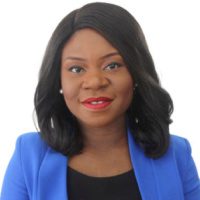
Lade Araba is a senior development finance executive and Board Member with over 18 years of experience. She is the Executive Director at the AlphaMundi Foundation. Ms. Araba was previously the Managing Director for Africa at Convergence Finance. She sits on the Equality Fund’s Investment Advisory Council, is an Advisory Committee Member at the Green Outcomes Fund, serves as a Non-Executive Director on the Board of African Risk Capacity (ARC) Ltd, and is the Co-Founder/President of the Visiola Foundation. She previously served as Technical Adviser to the former Minister of Finance of Nigeria and was the Head of the Strategic Monitoring Unit. She was also an Adviser in the Power Sector Team at the Nigeria Infrastructure Advisory Facility (NIAF). She was previously a Senior Investment Officer in Infrastructure Finance at the African Development Bank and served as Technical Adviser to the Executive Secretary of the UN Economic Commission for Africa. In addition to her native English, she is fluent in French and Italian, and has basic knowledge of Spanish and Yoruba. Connect with Lade on LinkedIn.
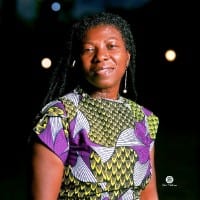
A negotiator for multilateral trade agreements, Matilda Arhin has consulted for SMEs and start-ups from a diverse range of industries in Switzerland, the United States, and Africa, including eCommerce, transportation, manufacturing and technology, energy, consumer goods, housing infrastructure, healthcare and agriculture. She has also consulted for the public sector and government organizations in Africa, Switzerland and the United States. She was the prime influence behind a series of initiatives to enhance trade, investment, and economic cooperation with African countries and is recognized as one of the foremost experts on African trade, investment and education. She recently joined Vector Global Logistics as a business developer.
